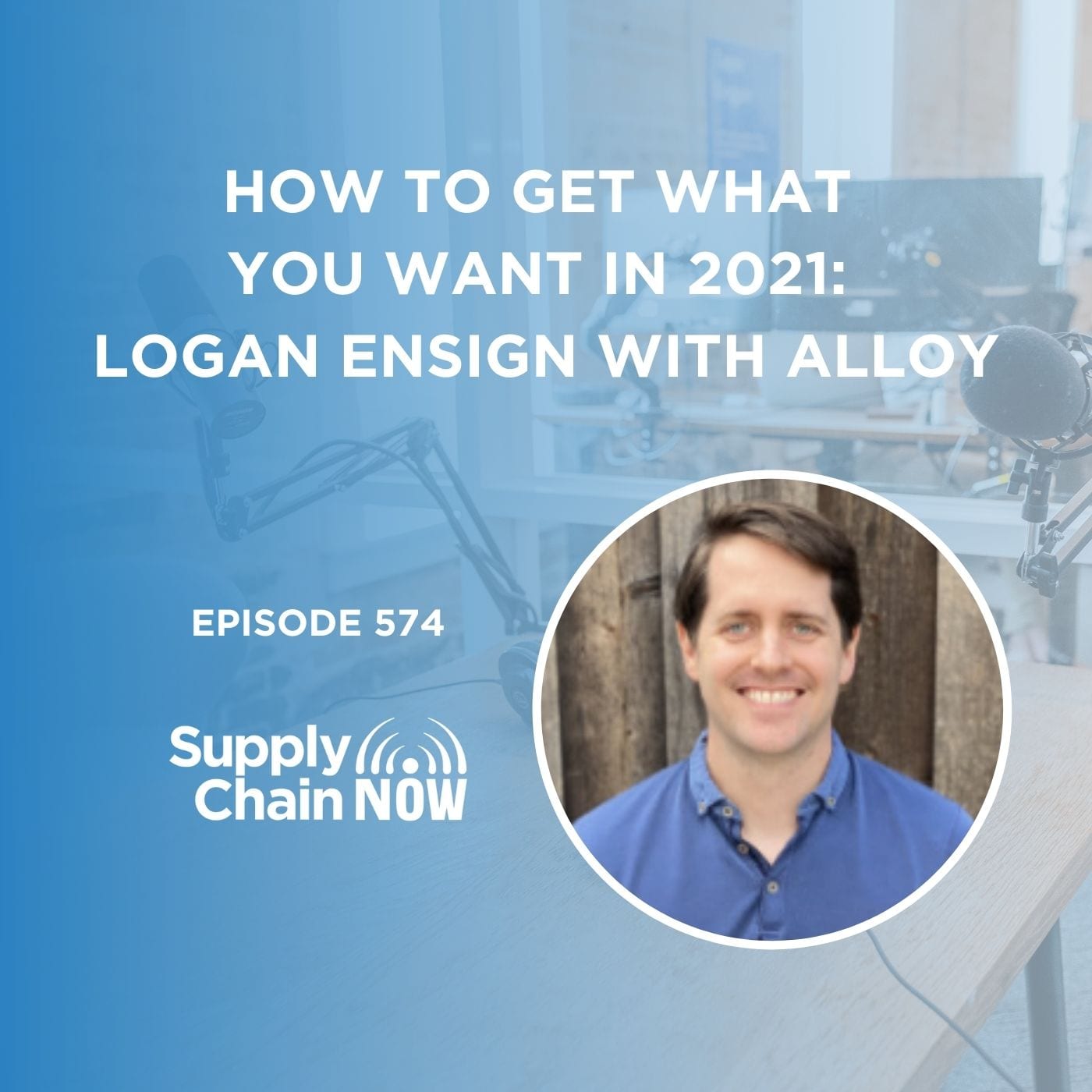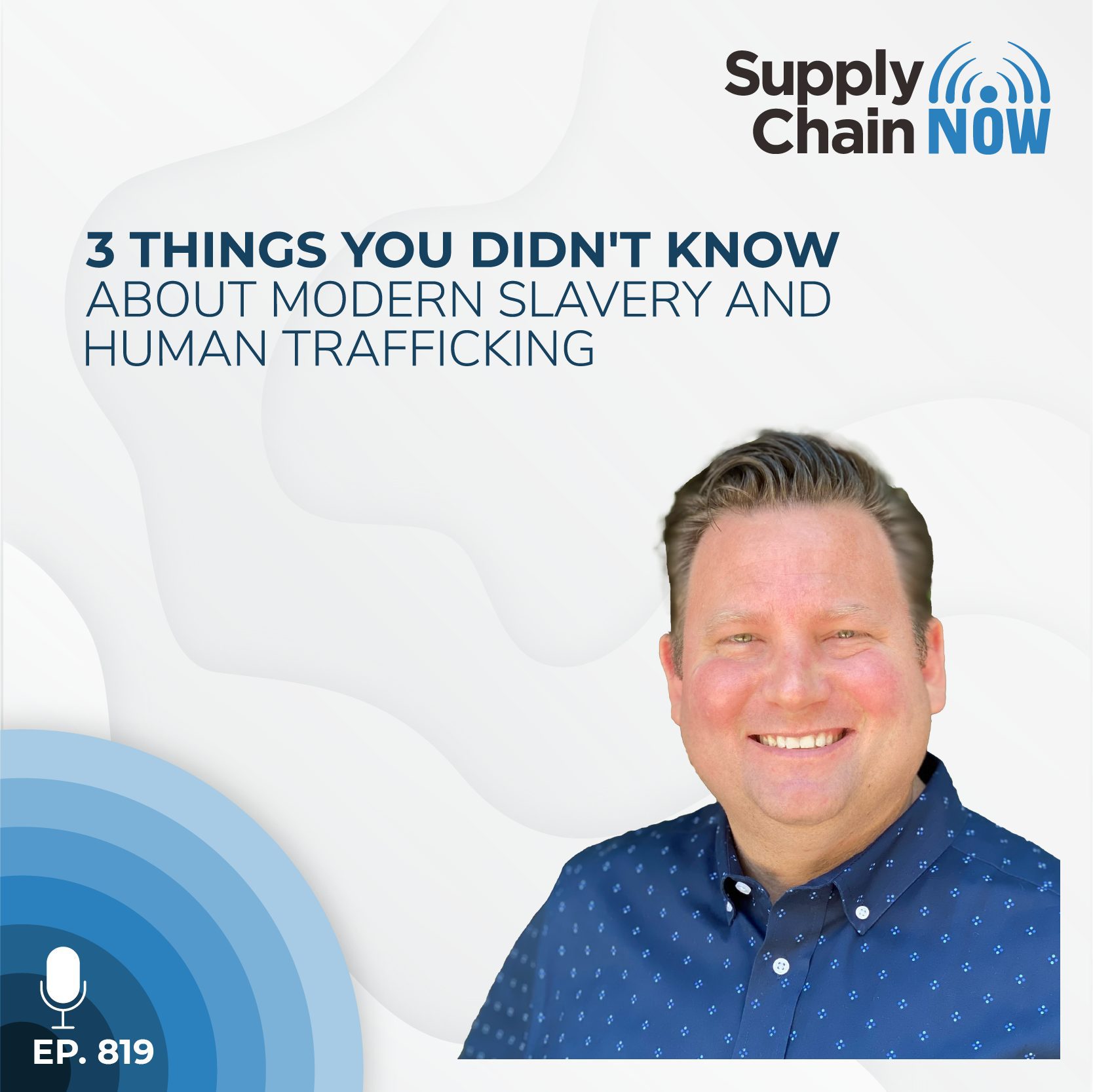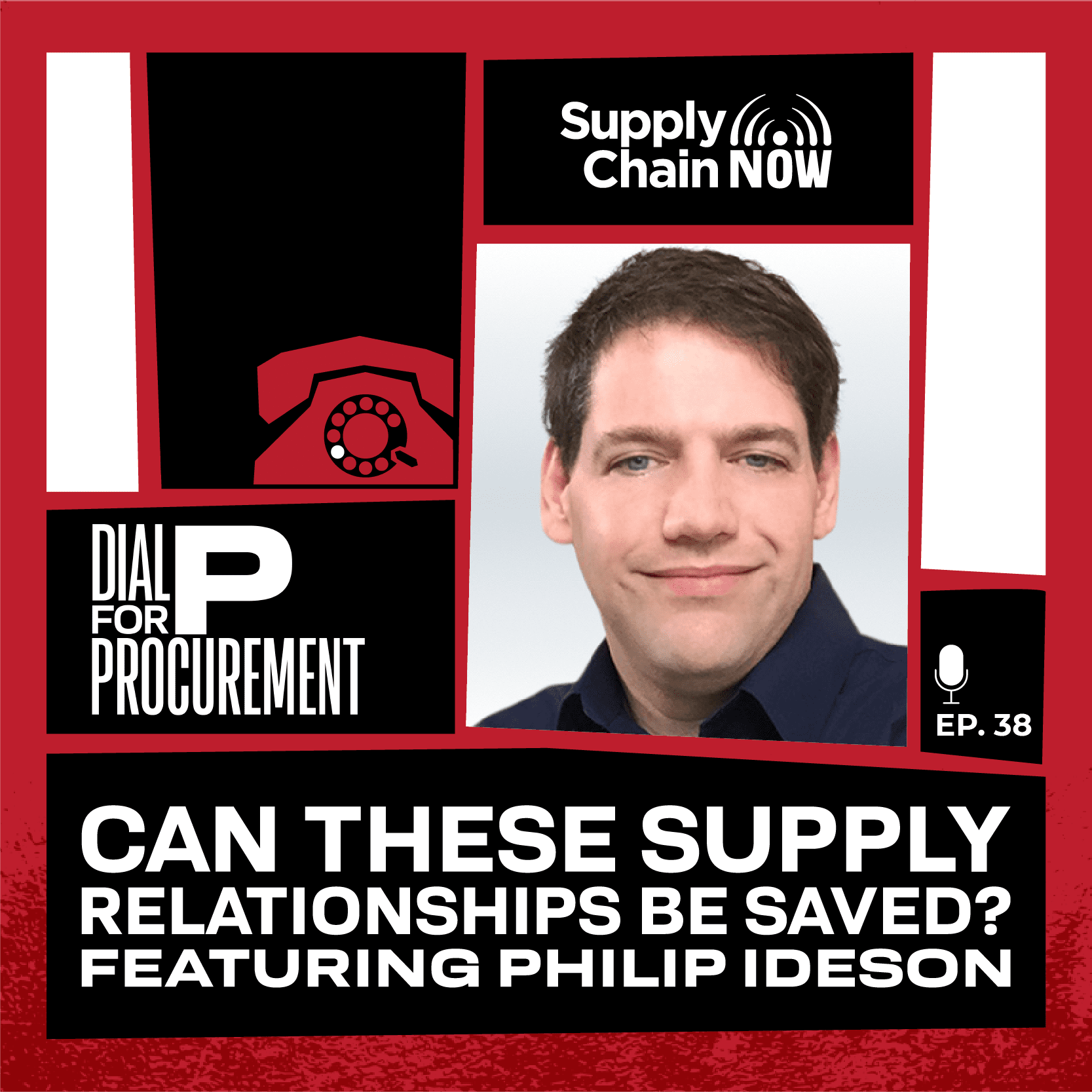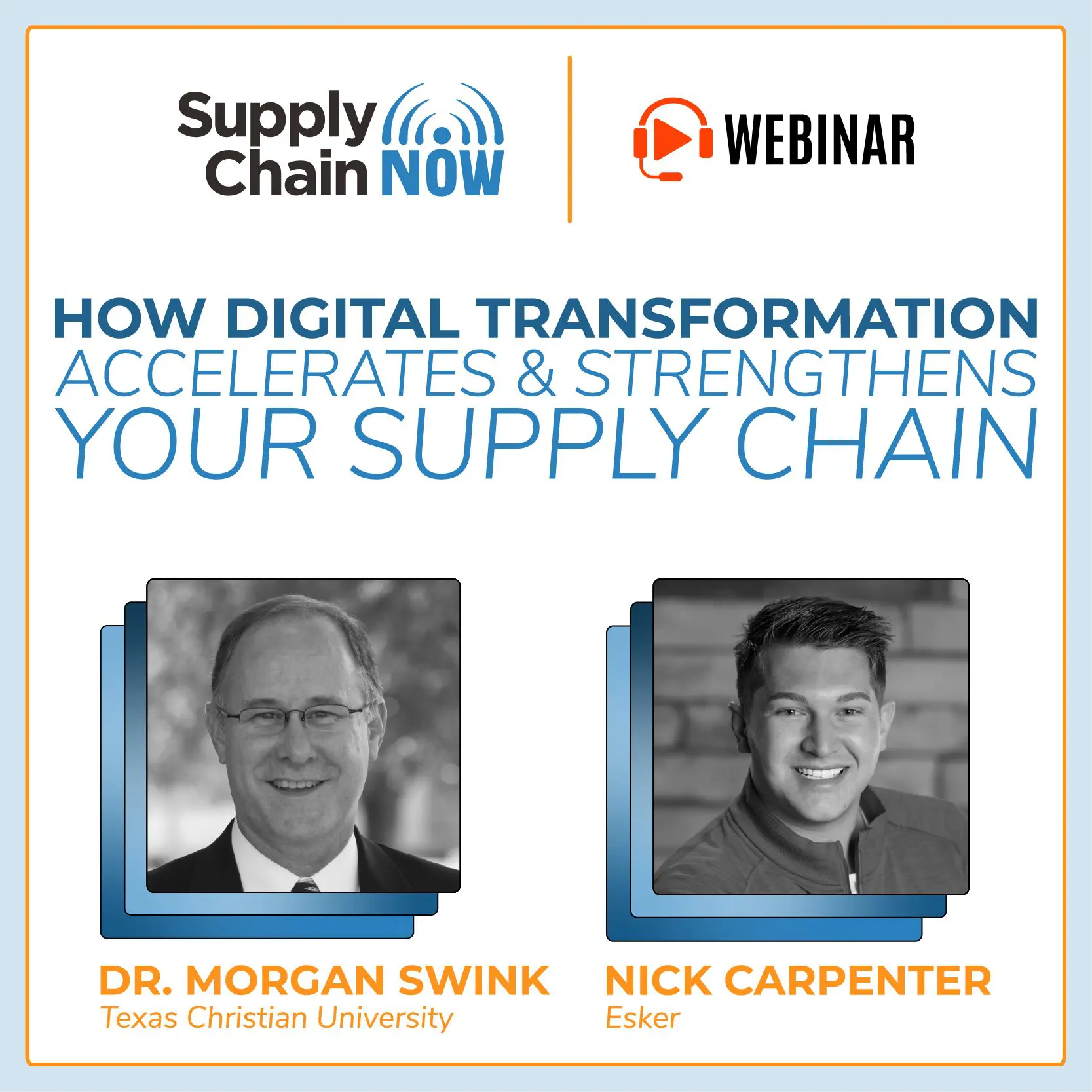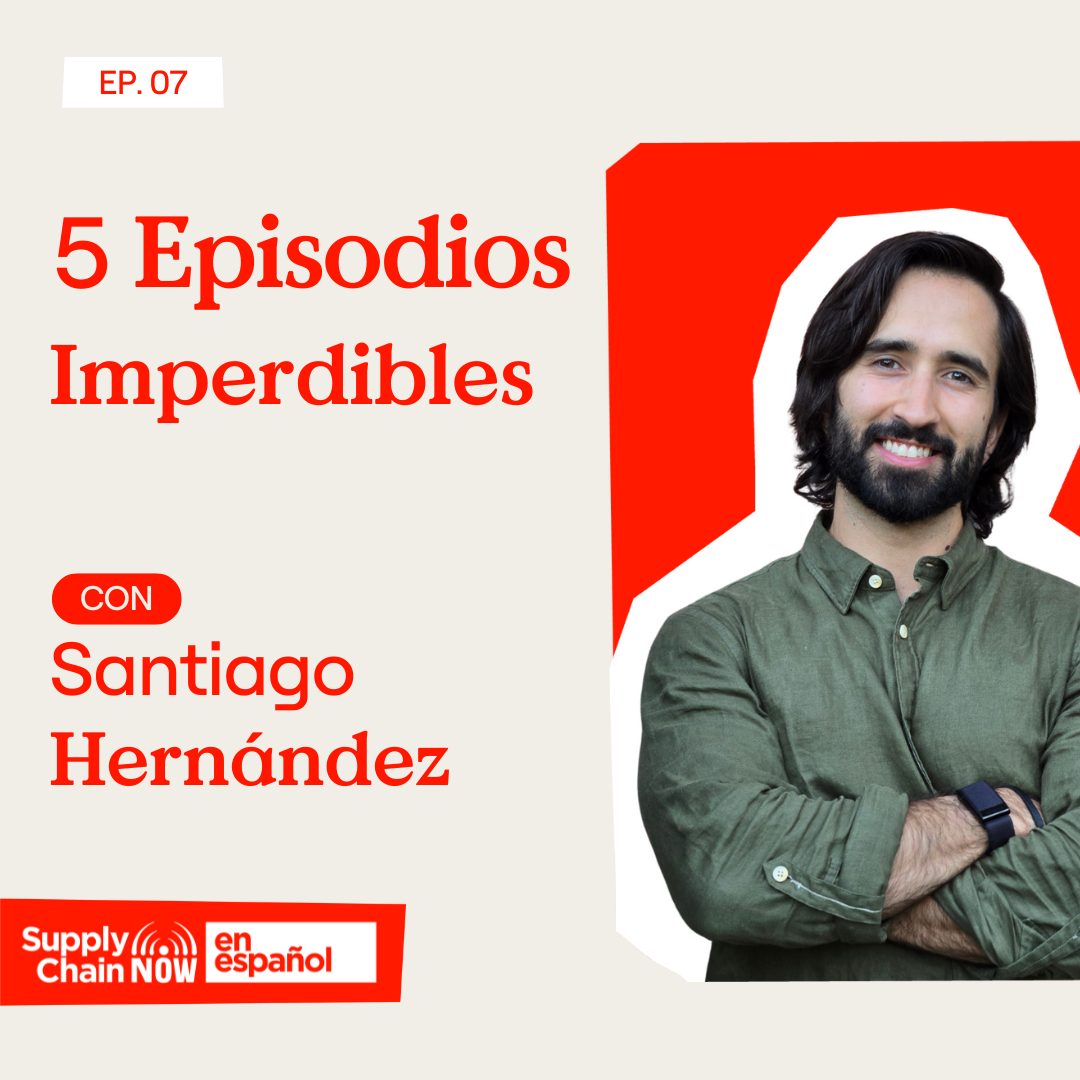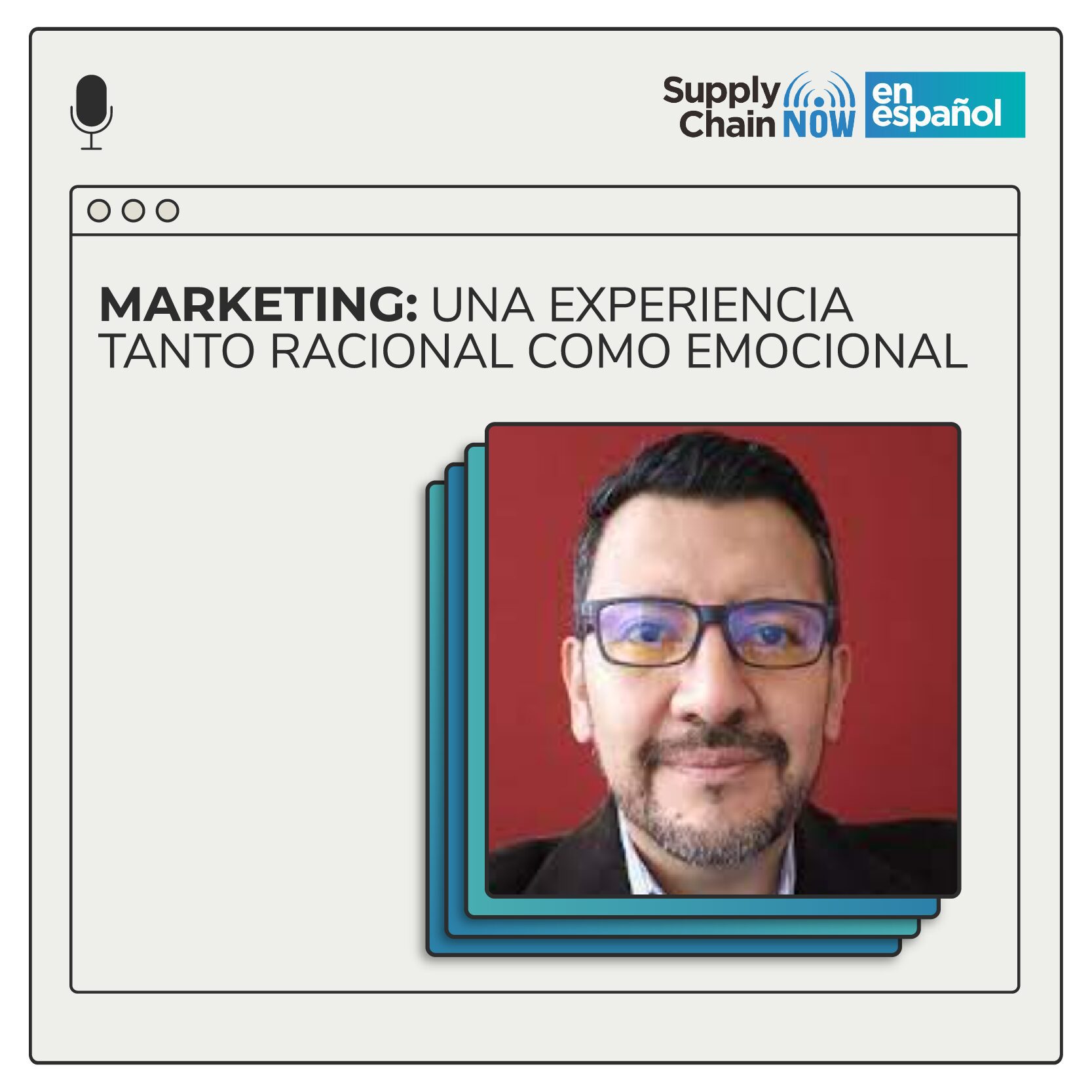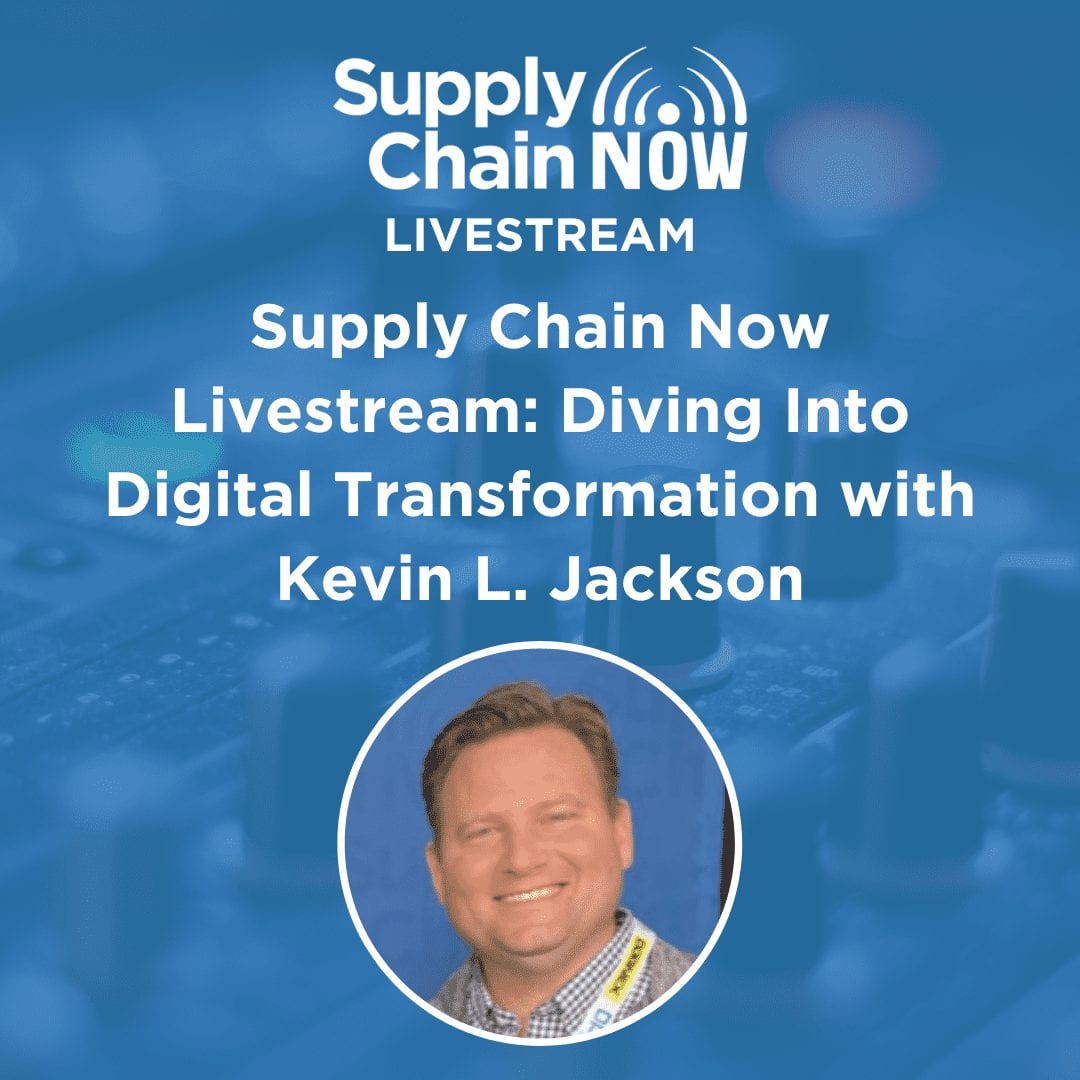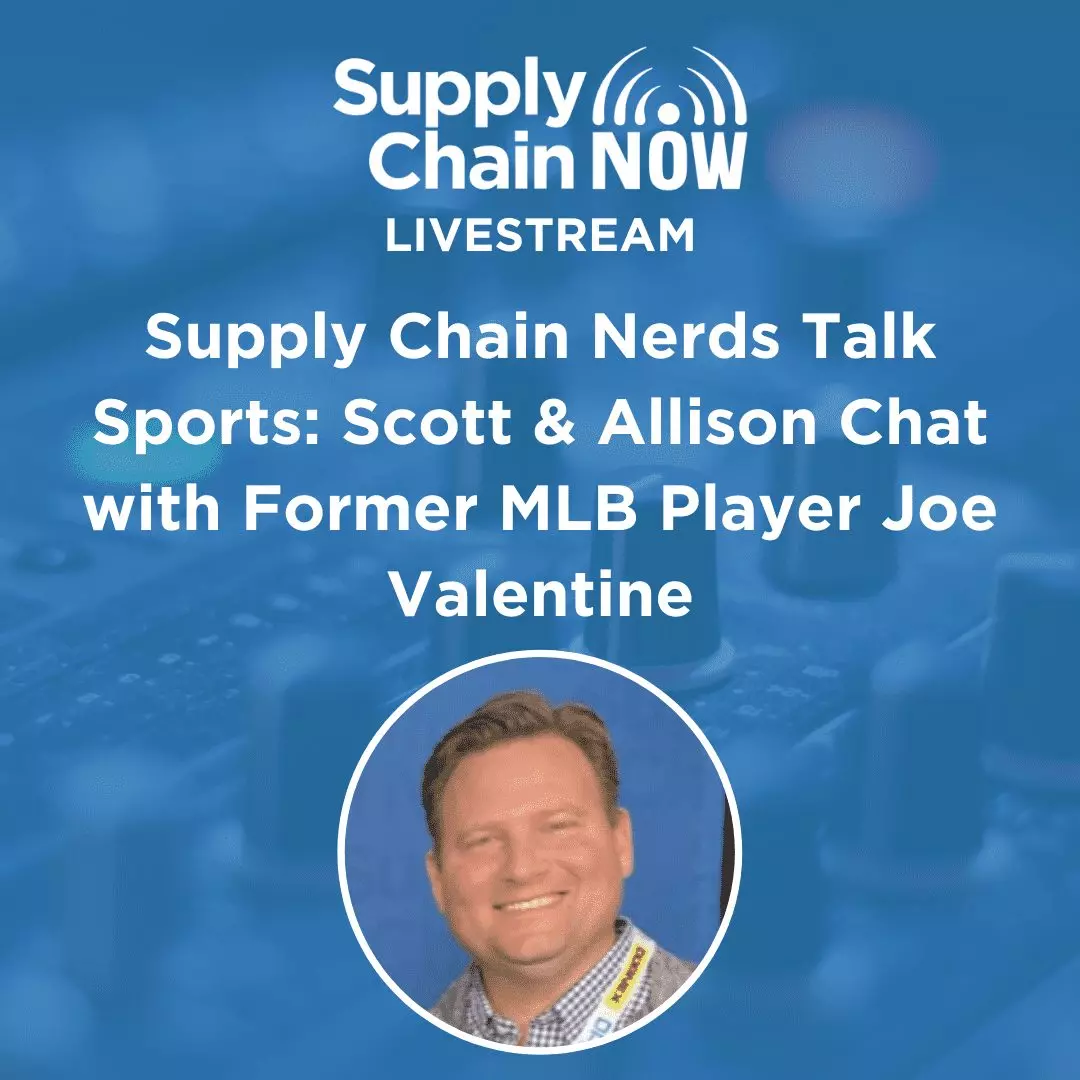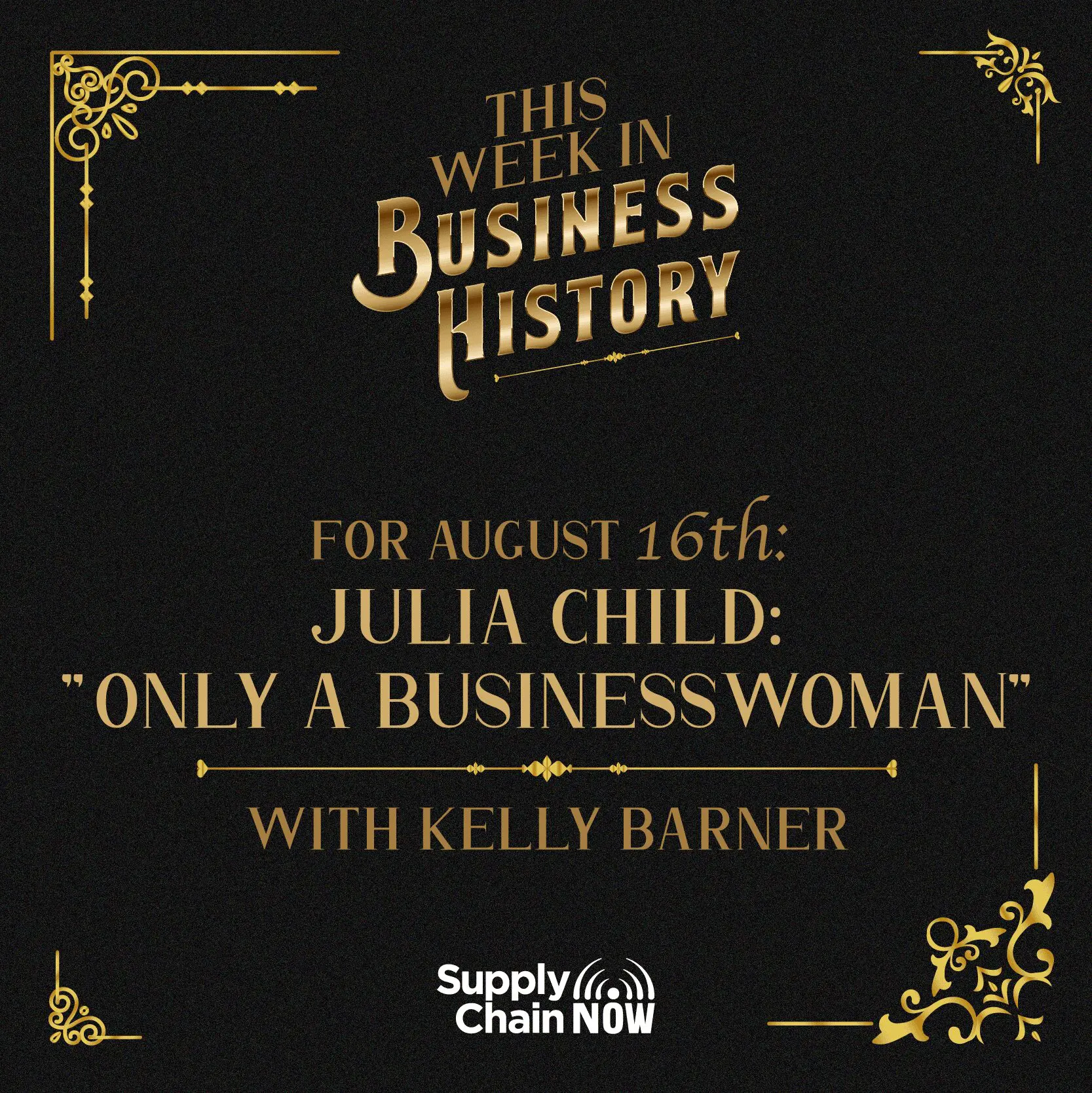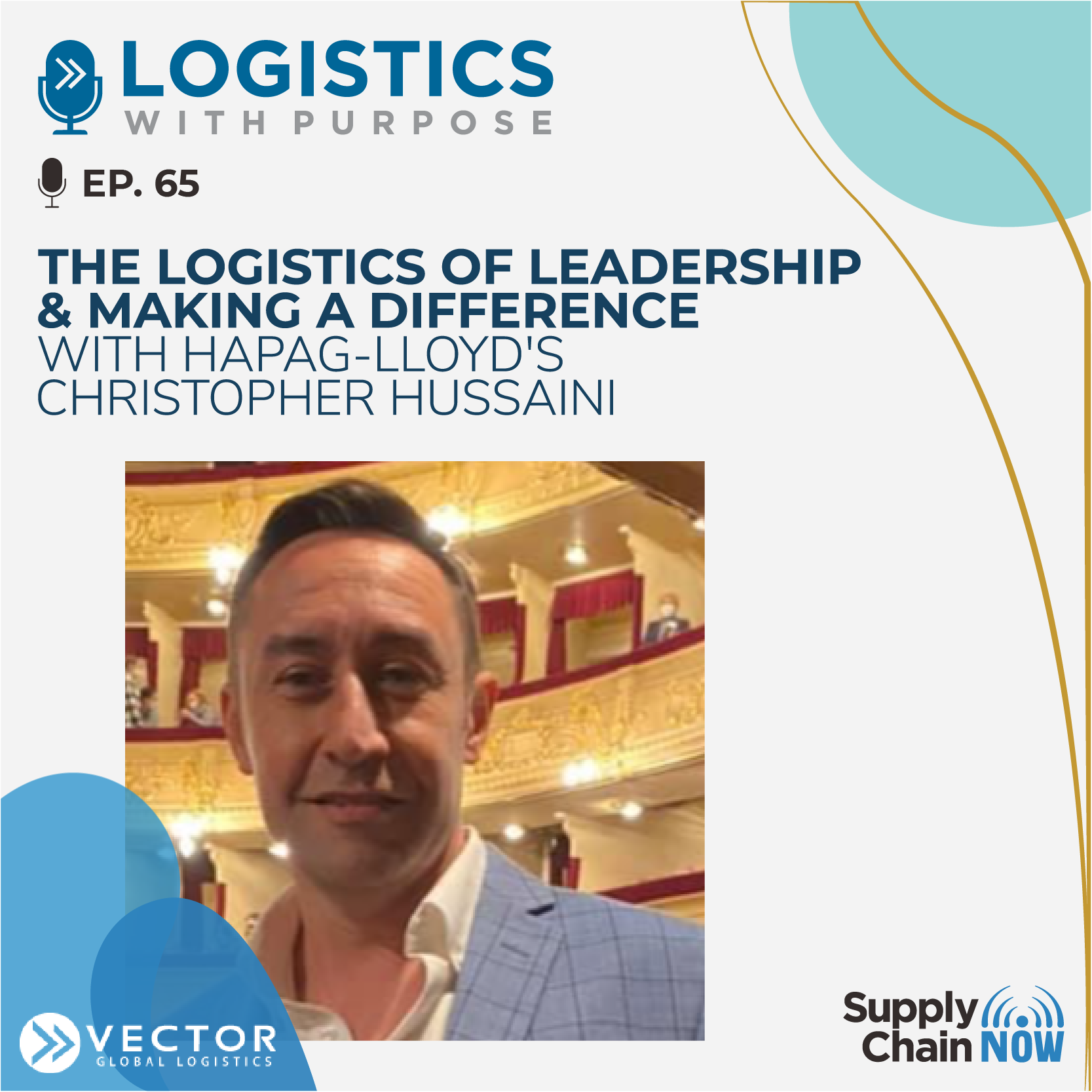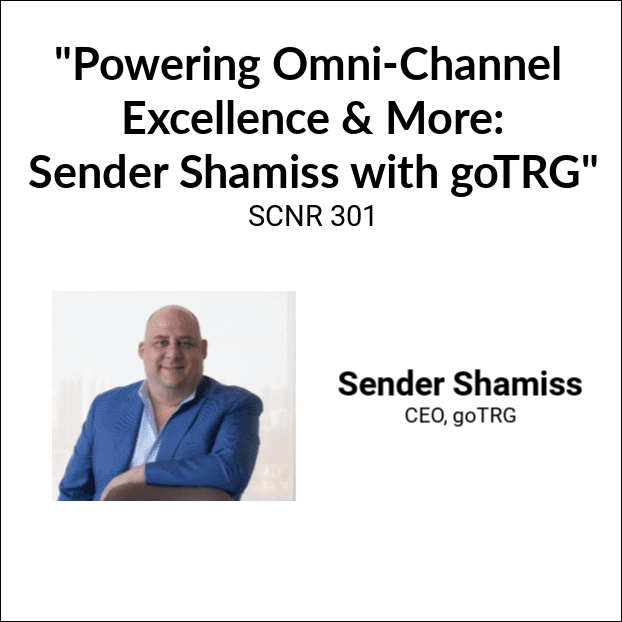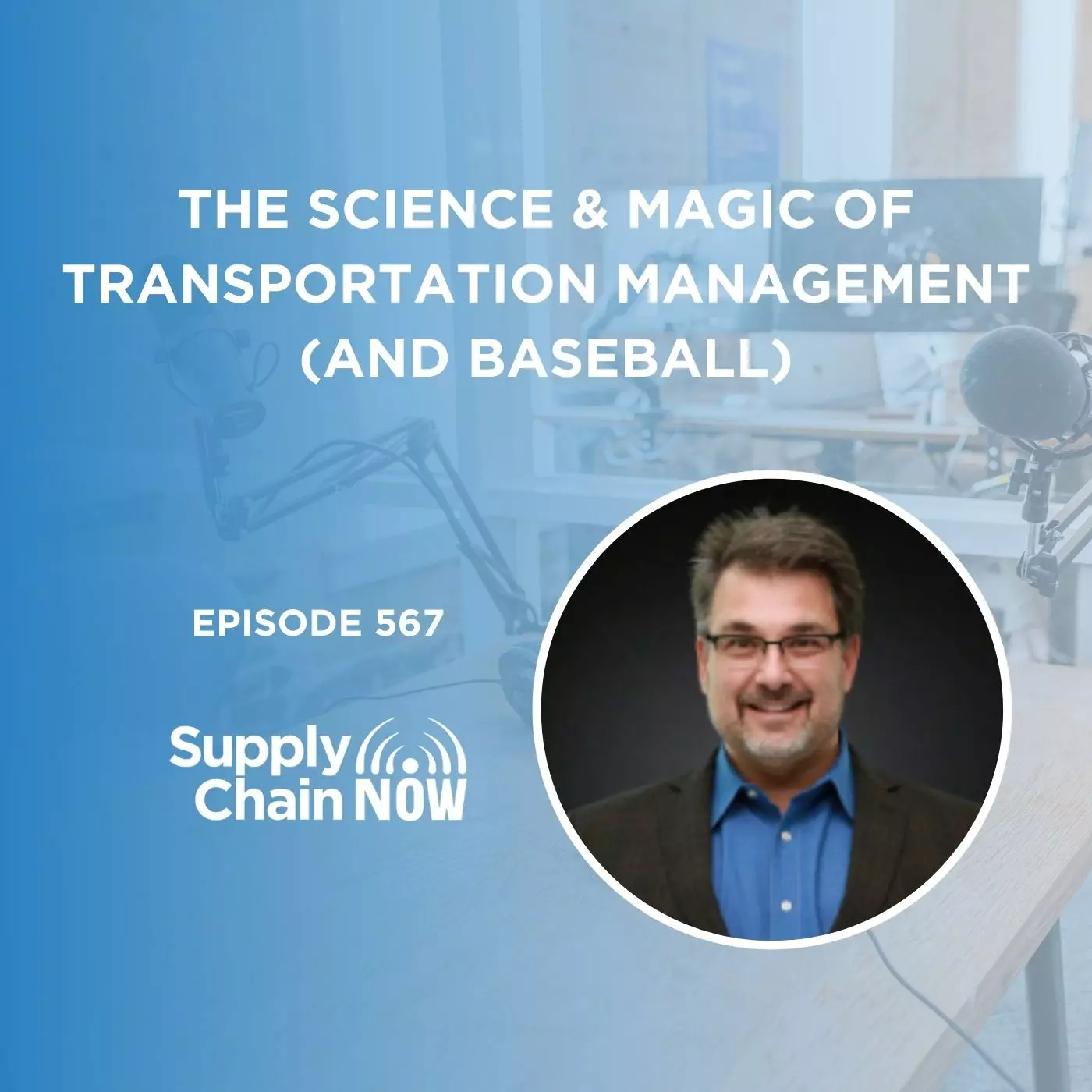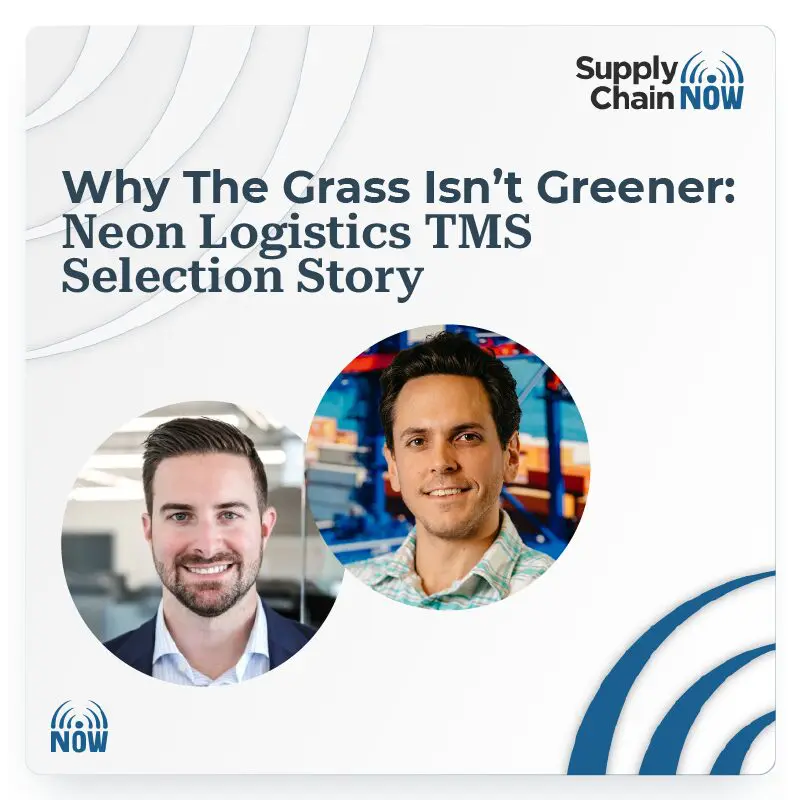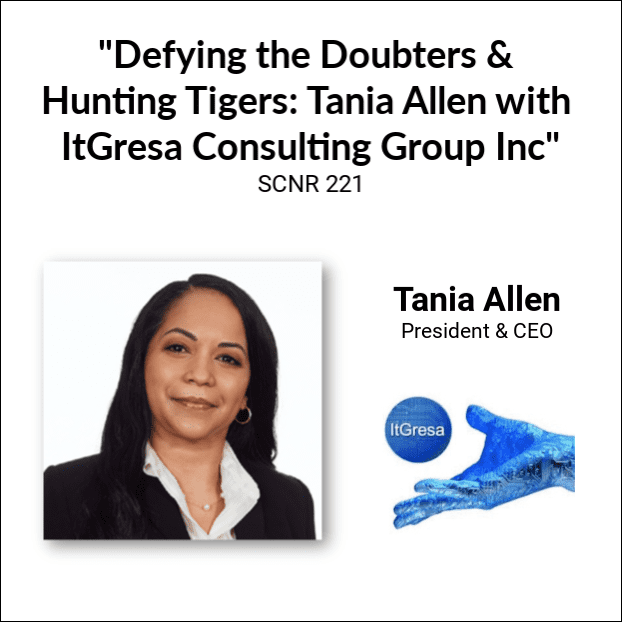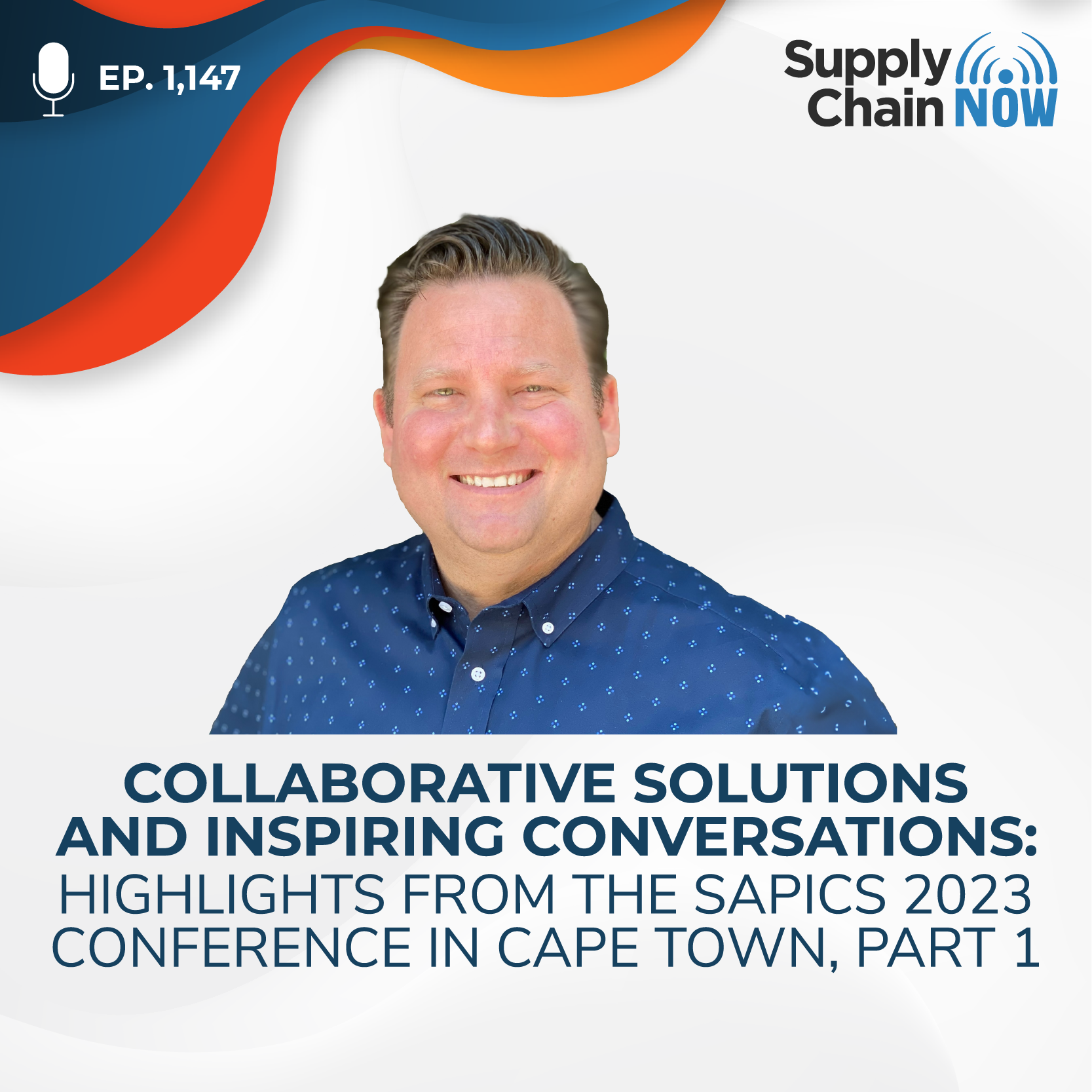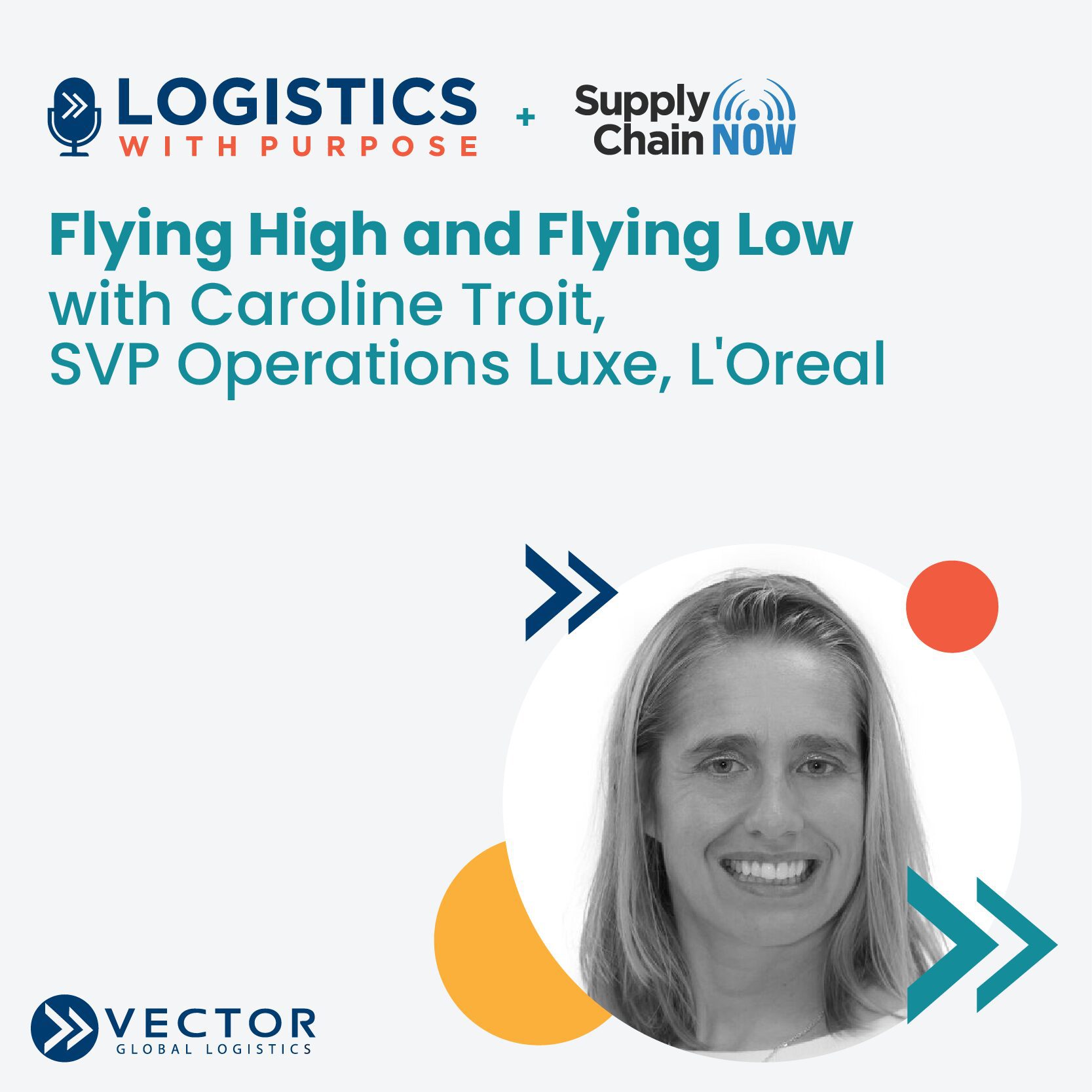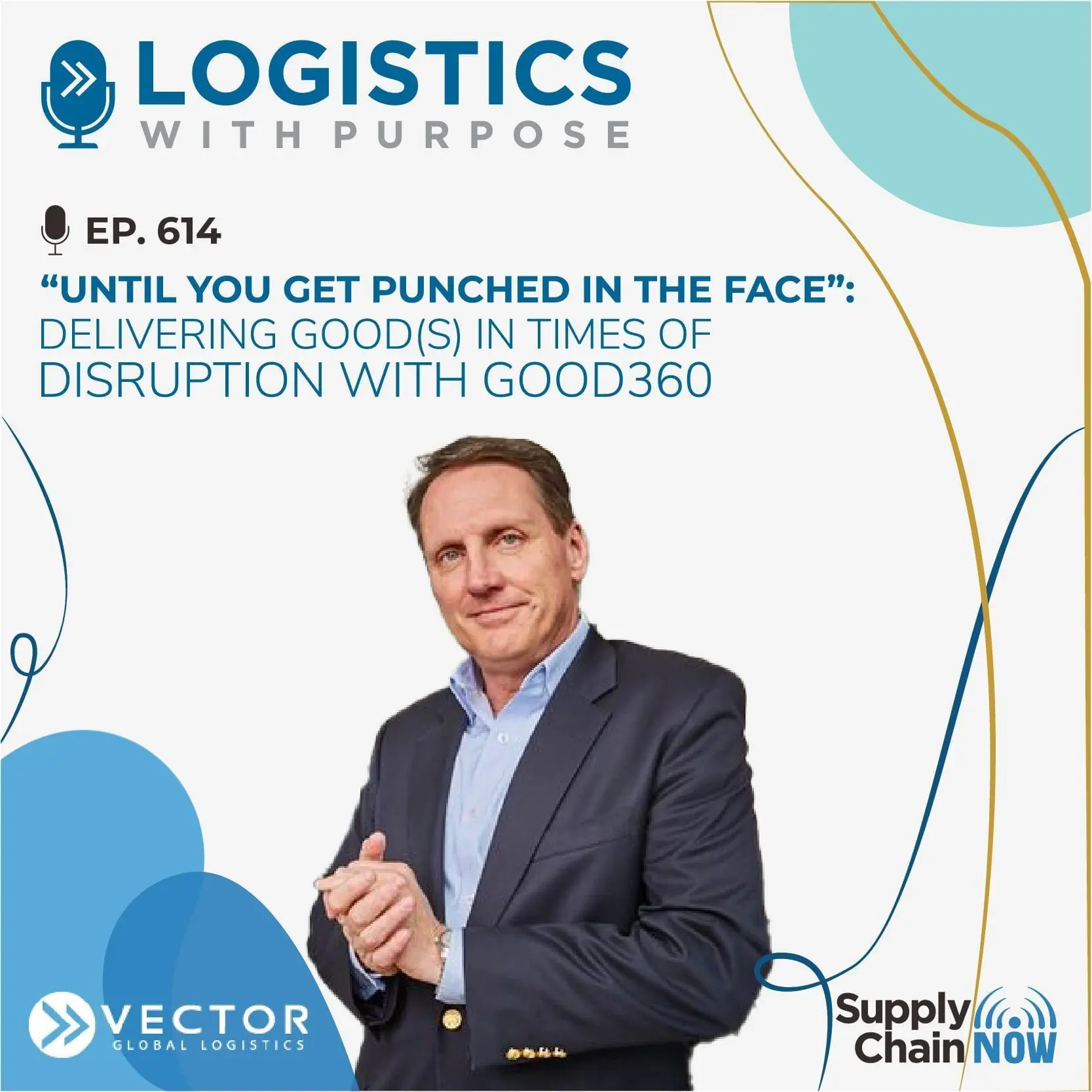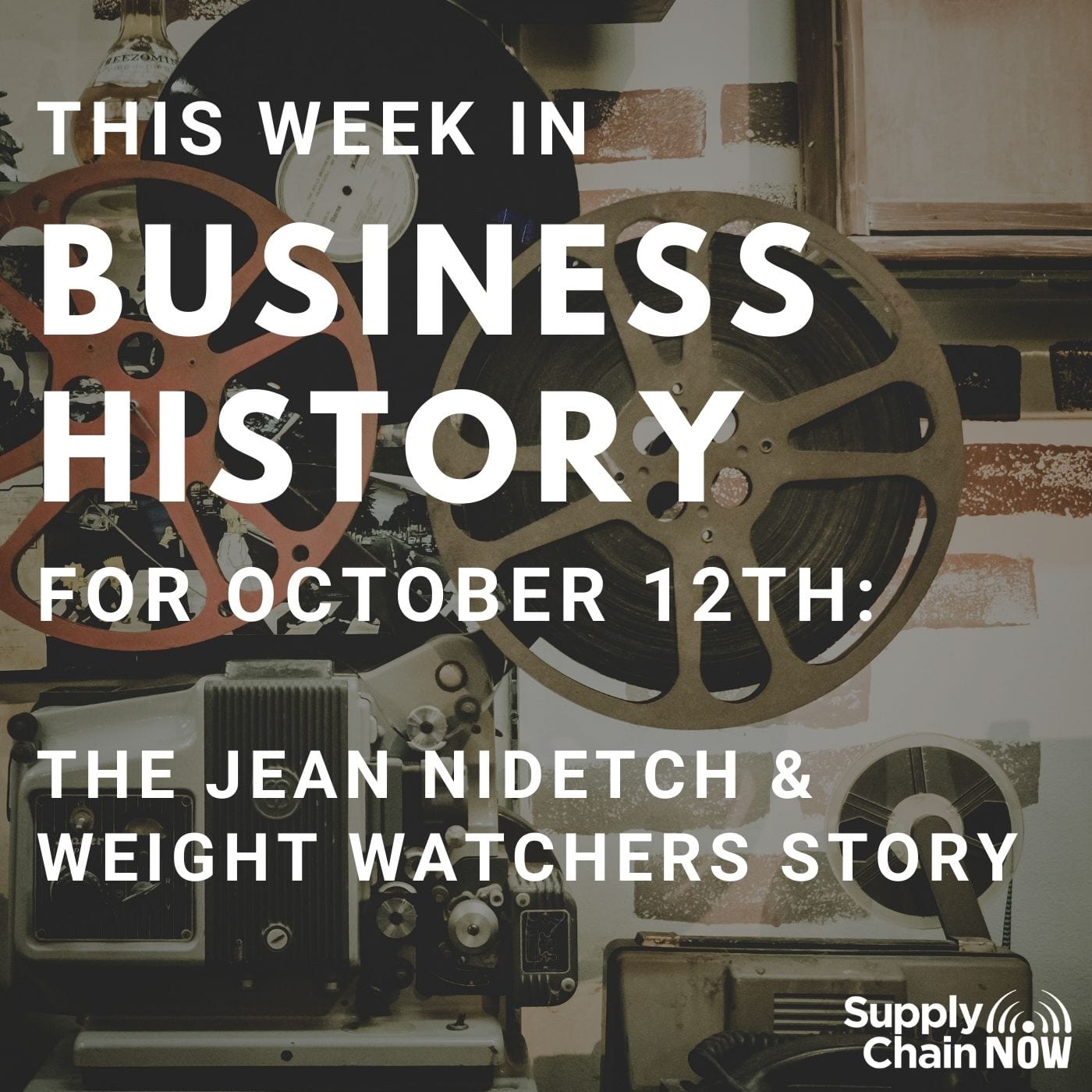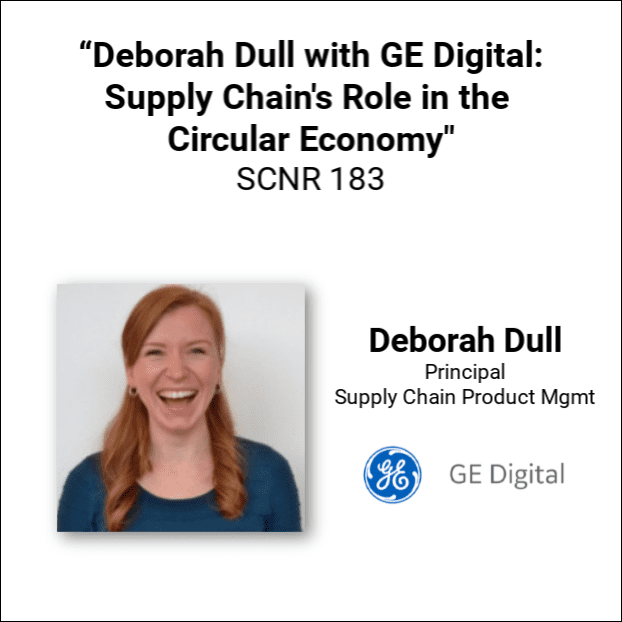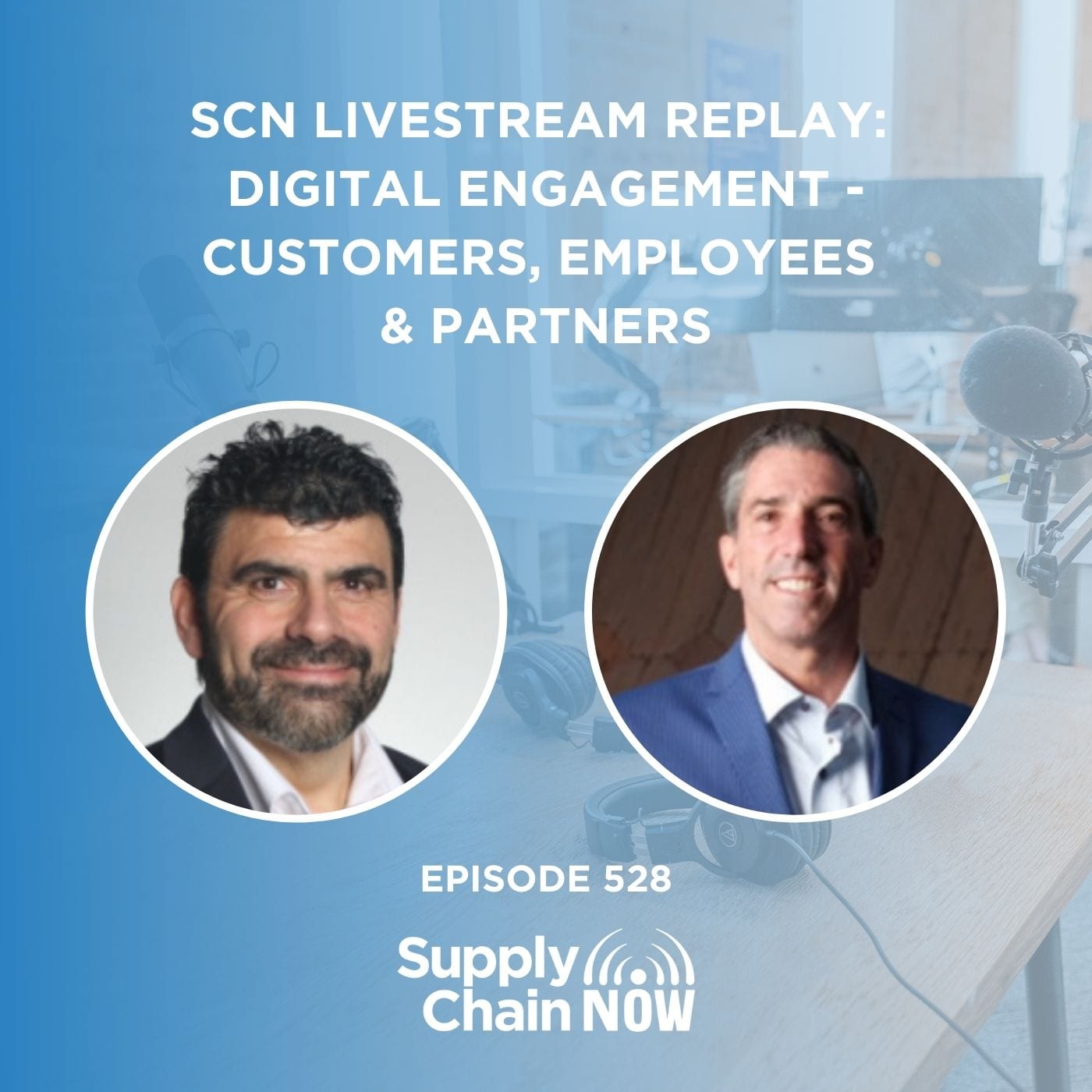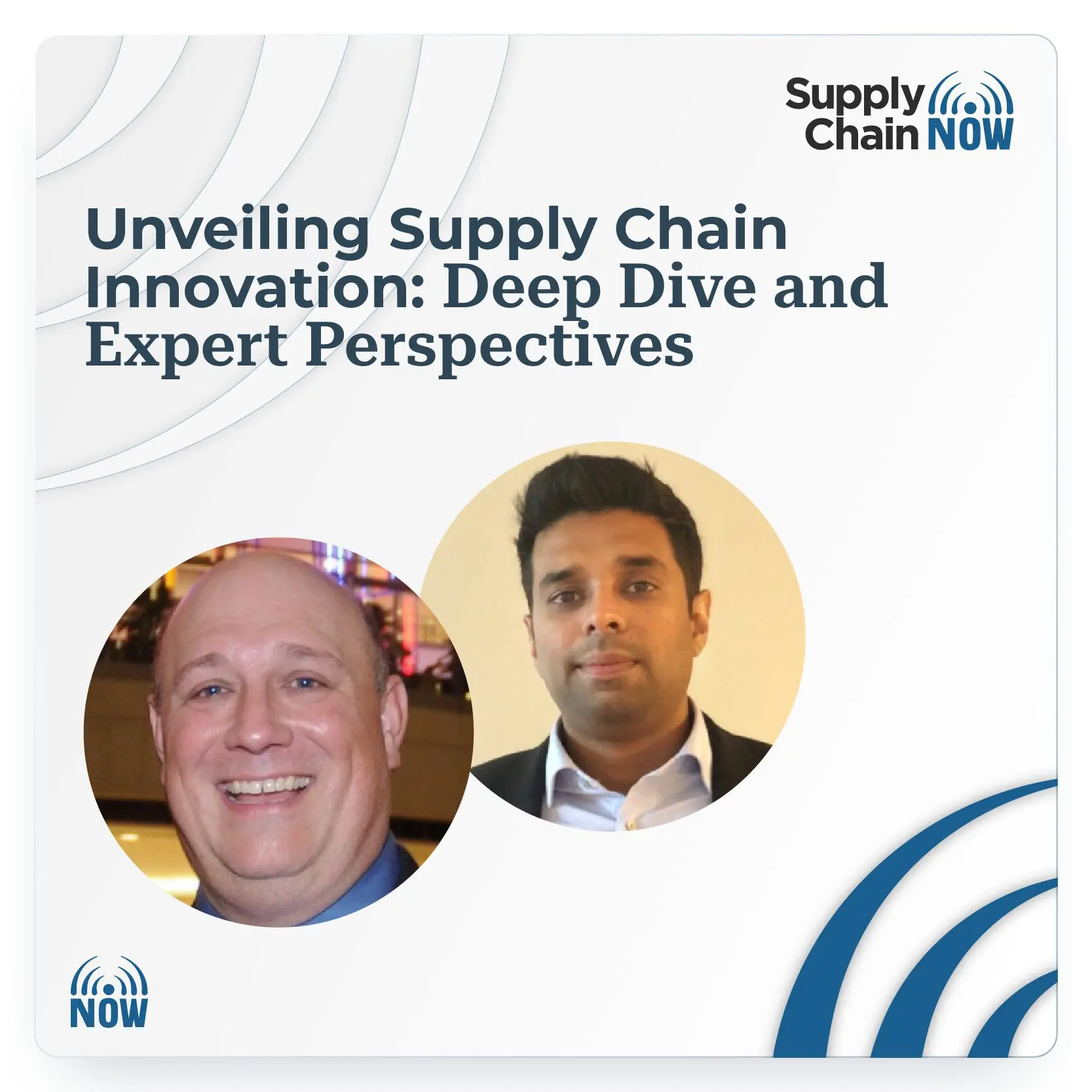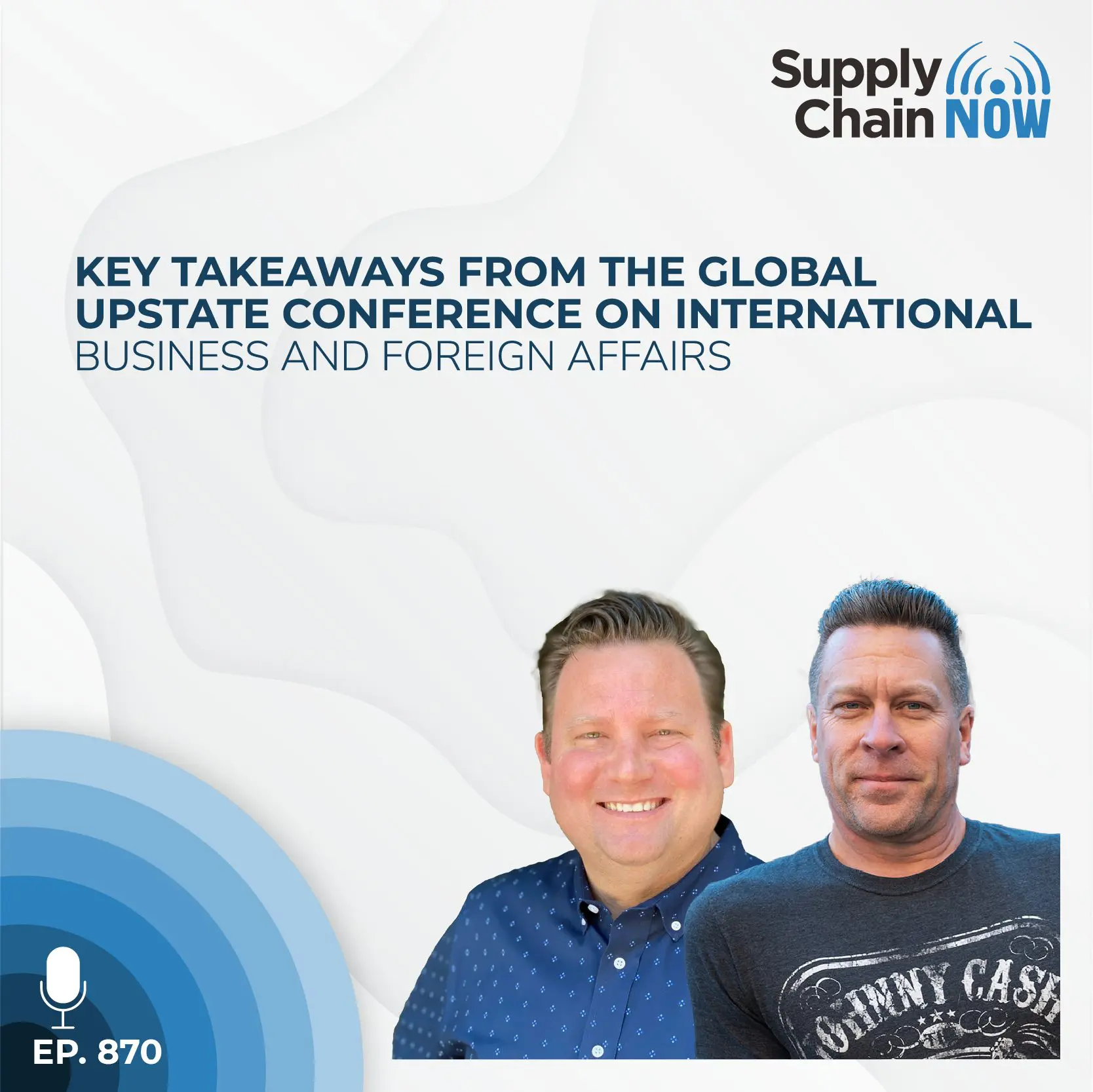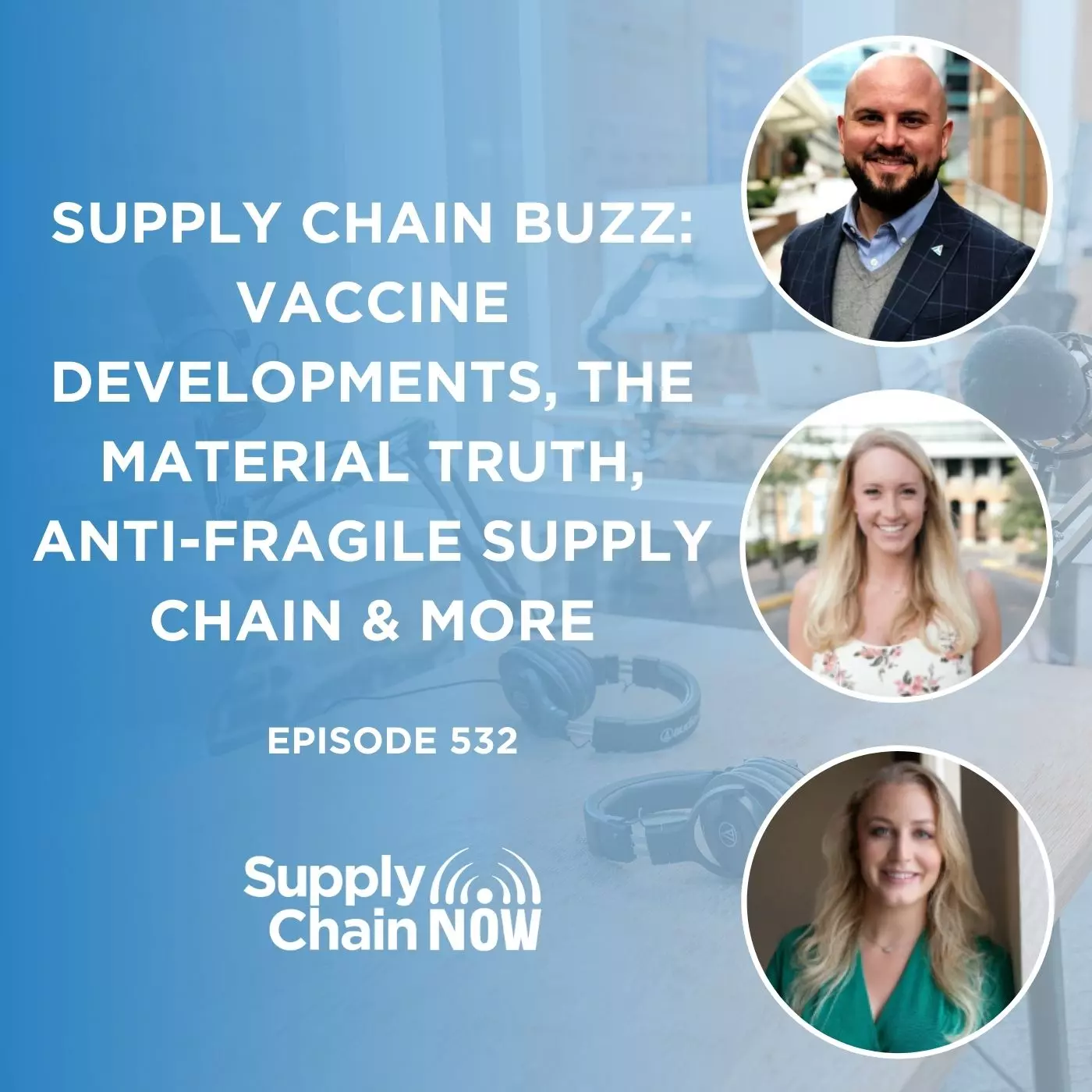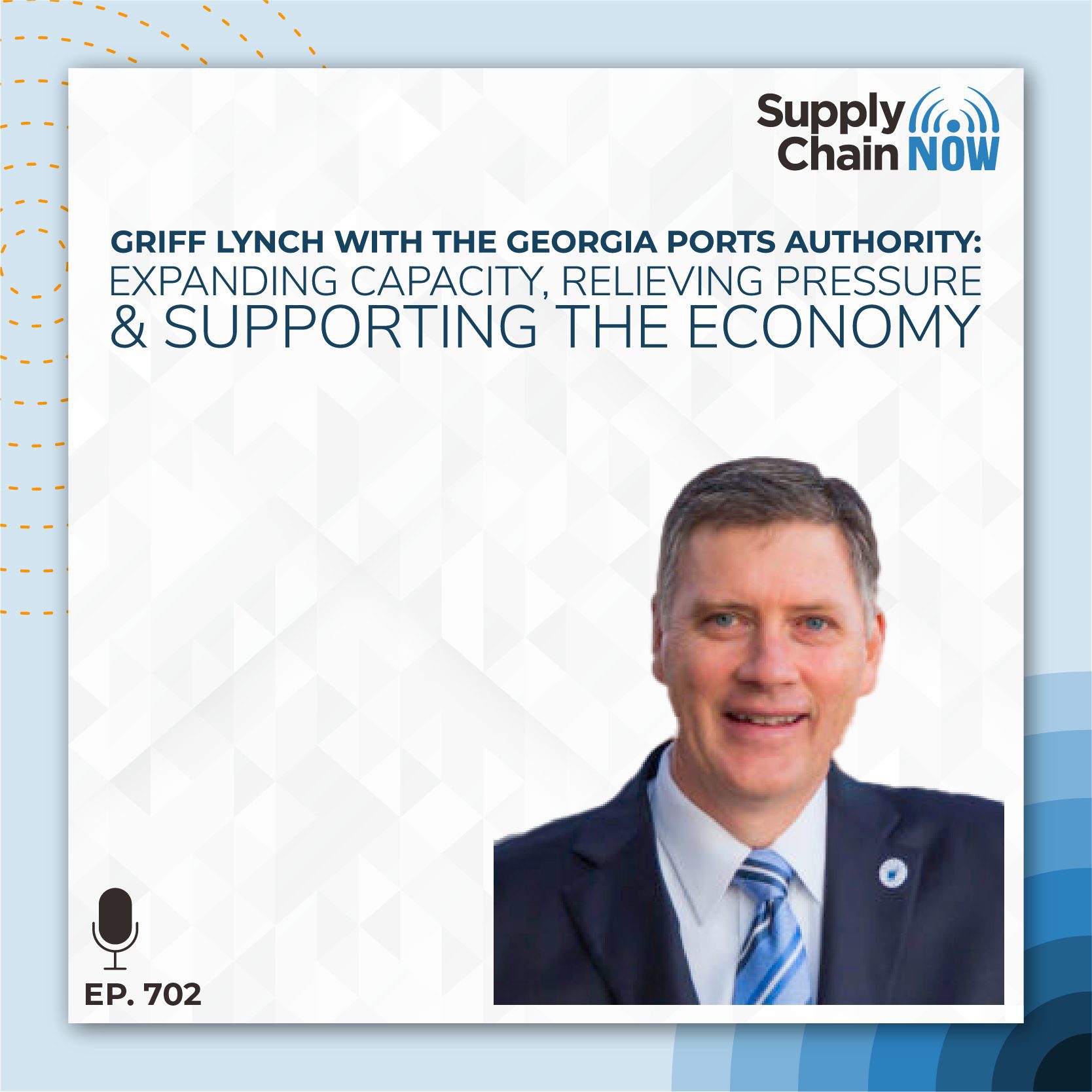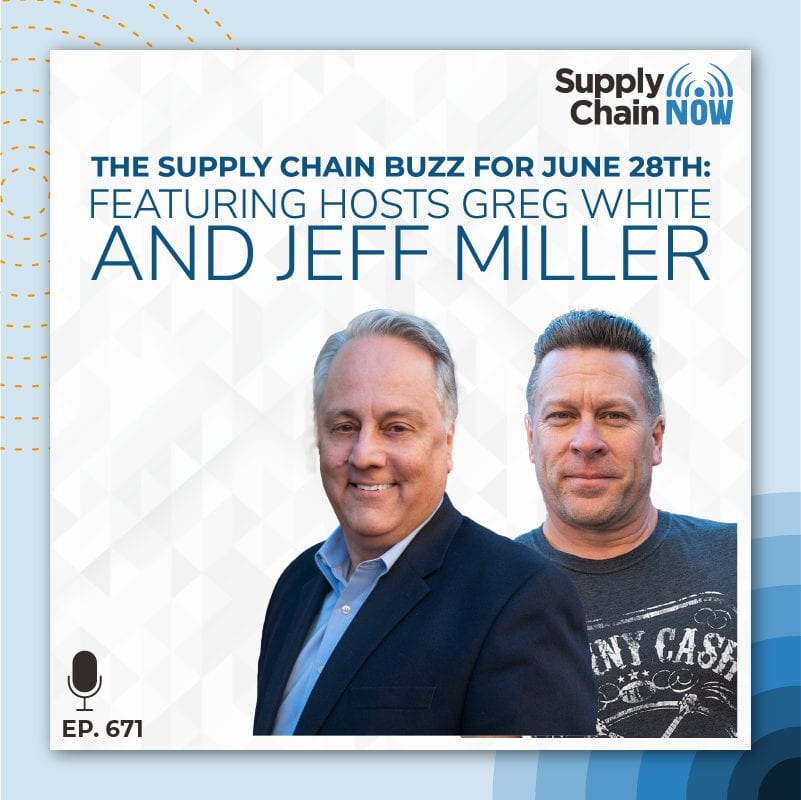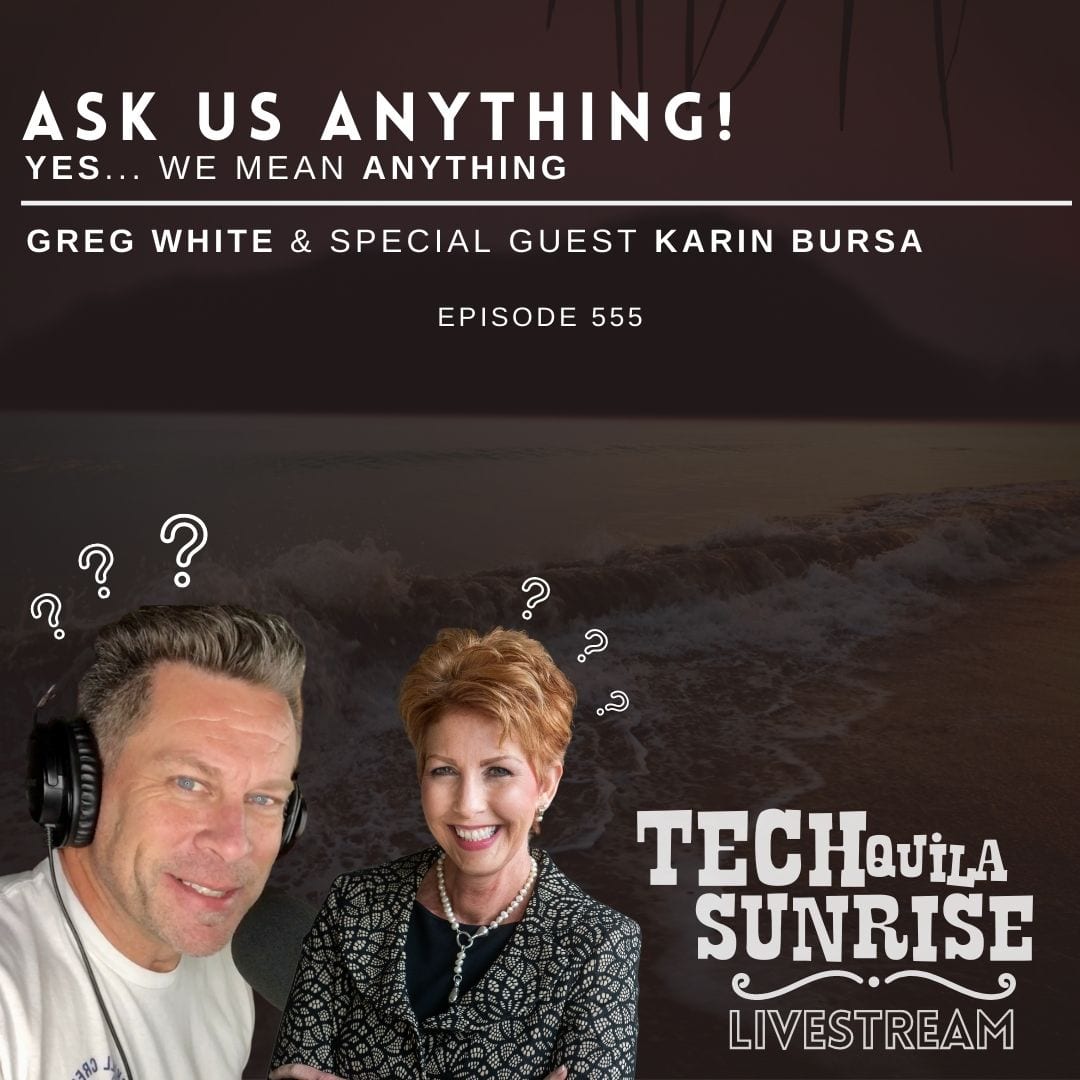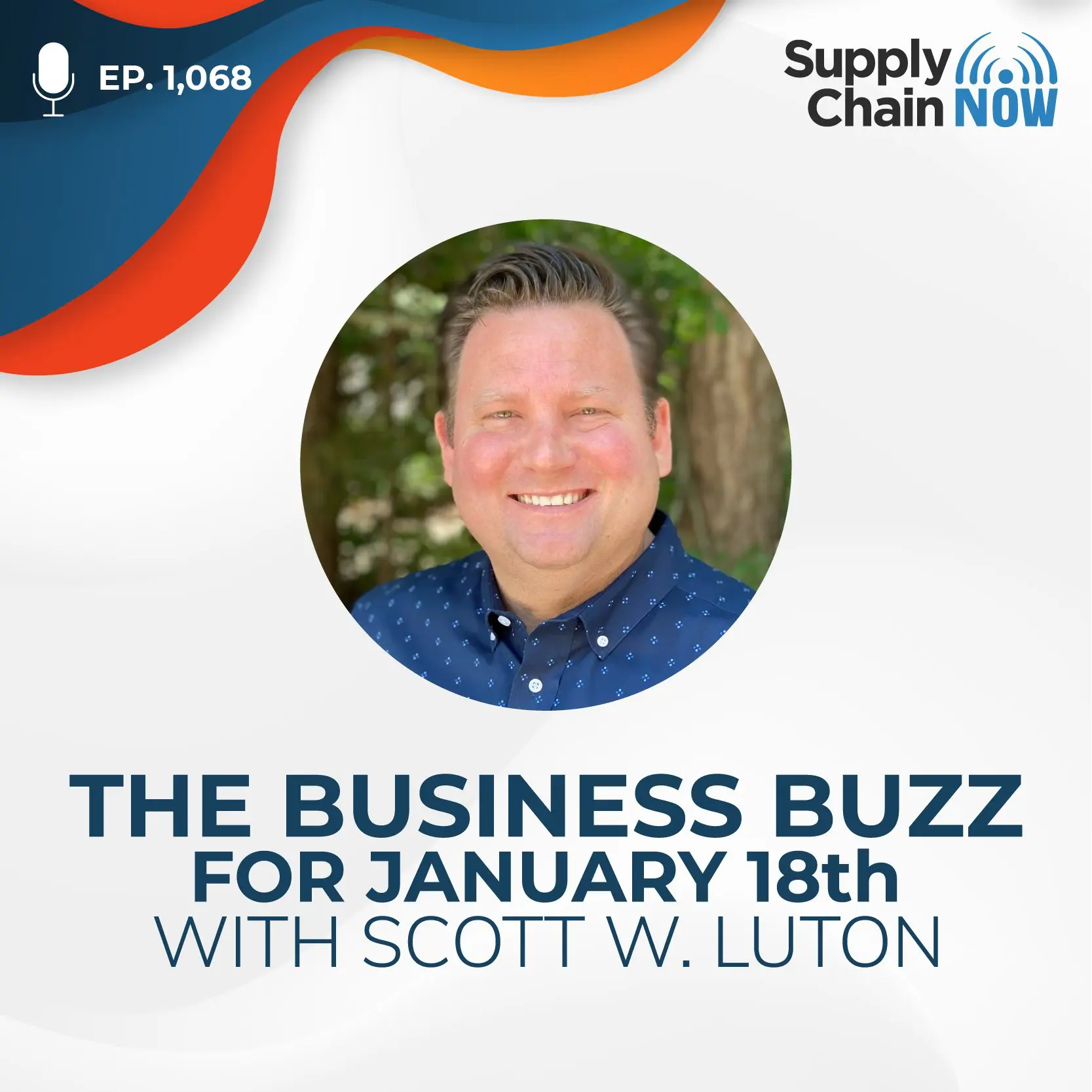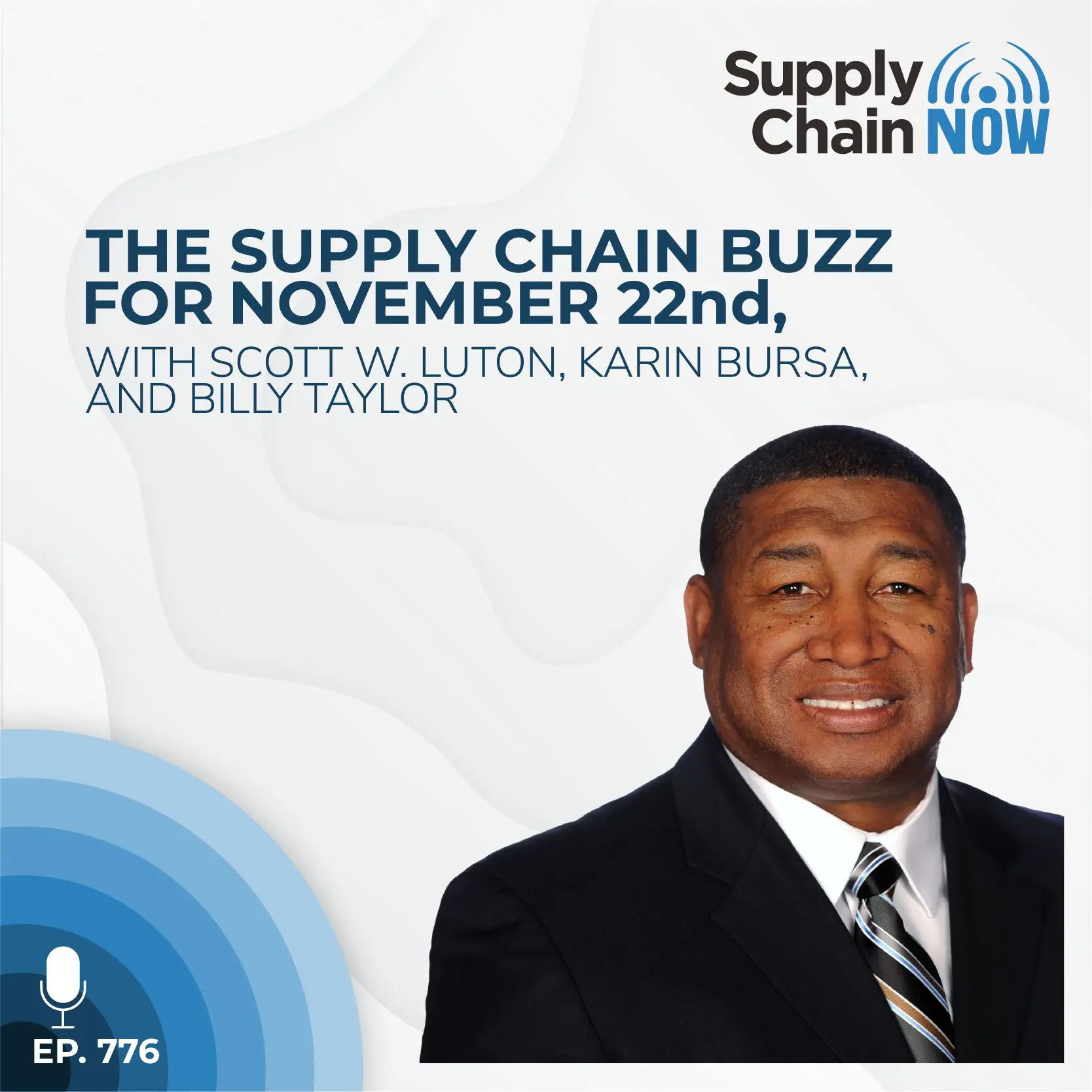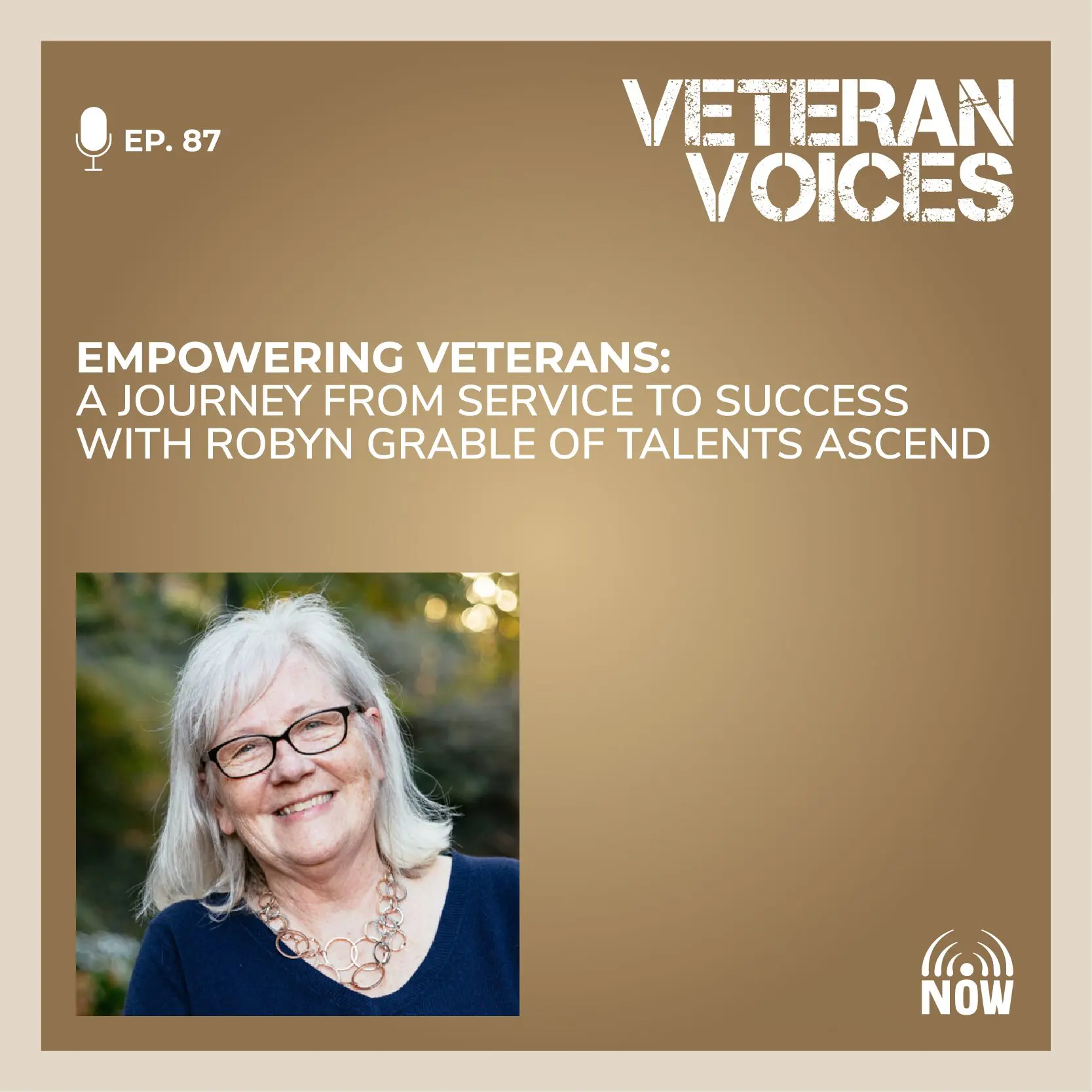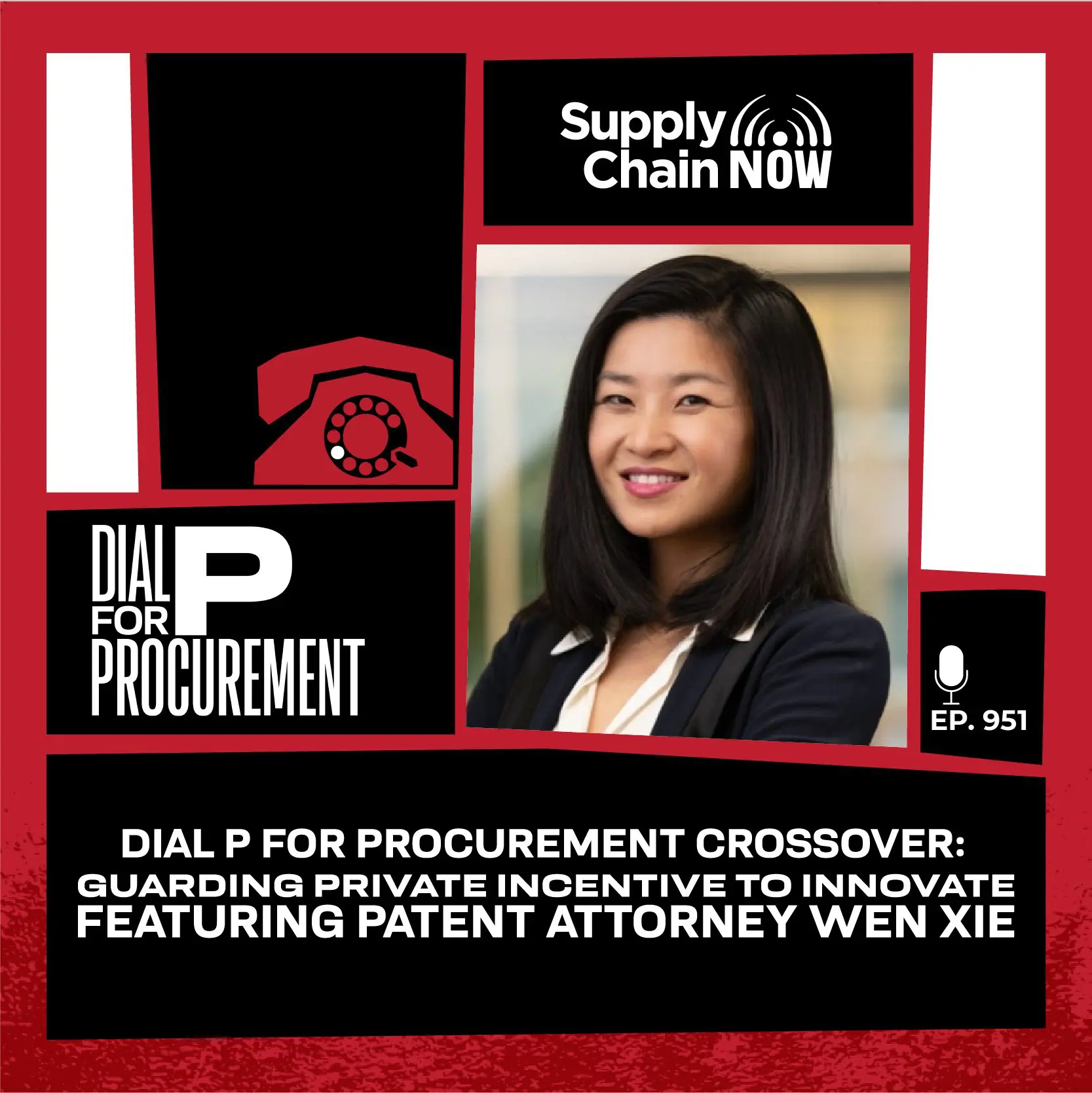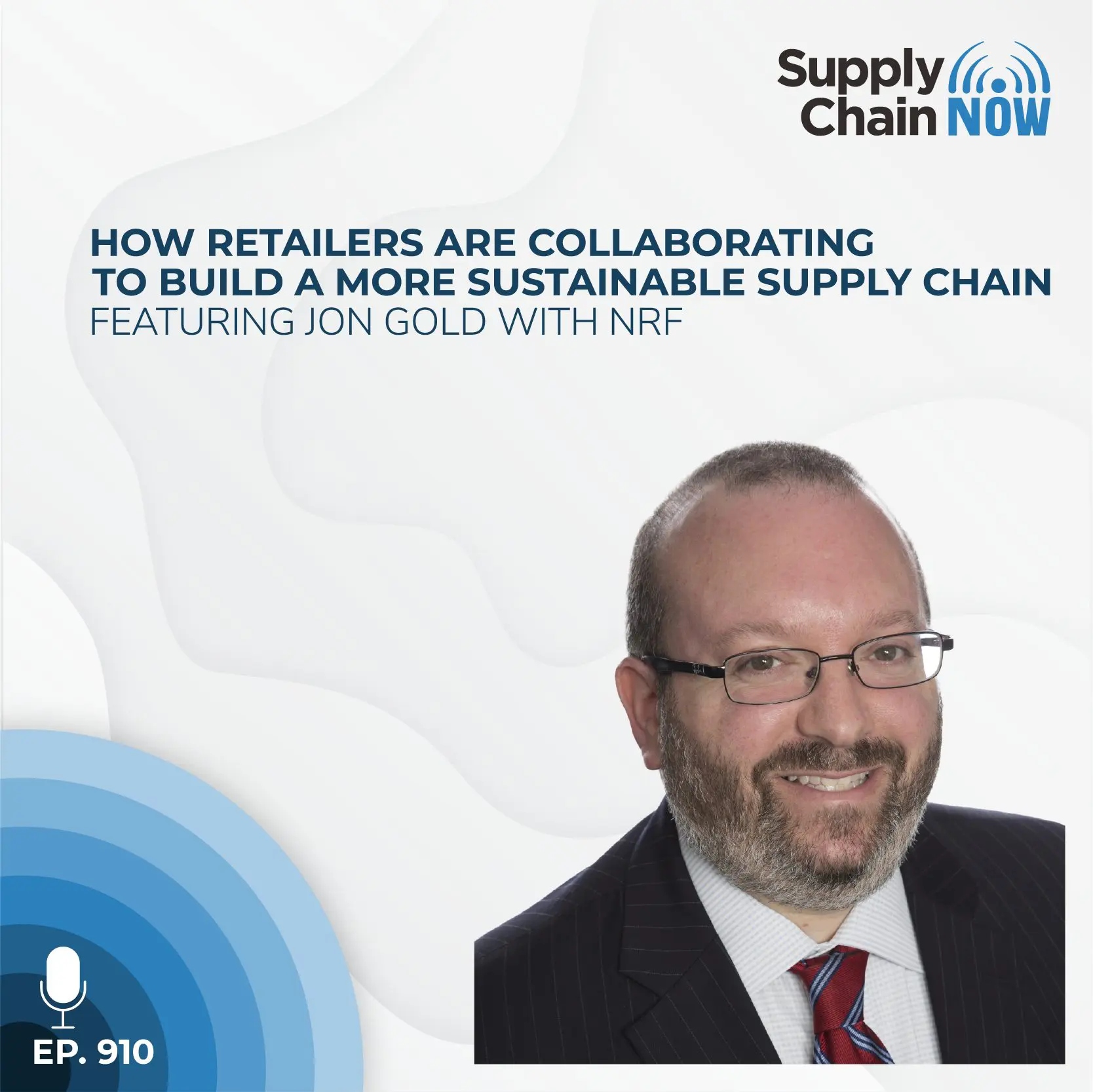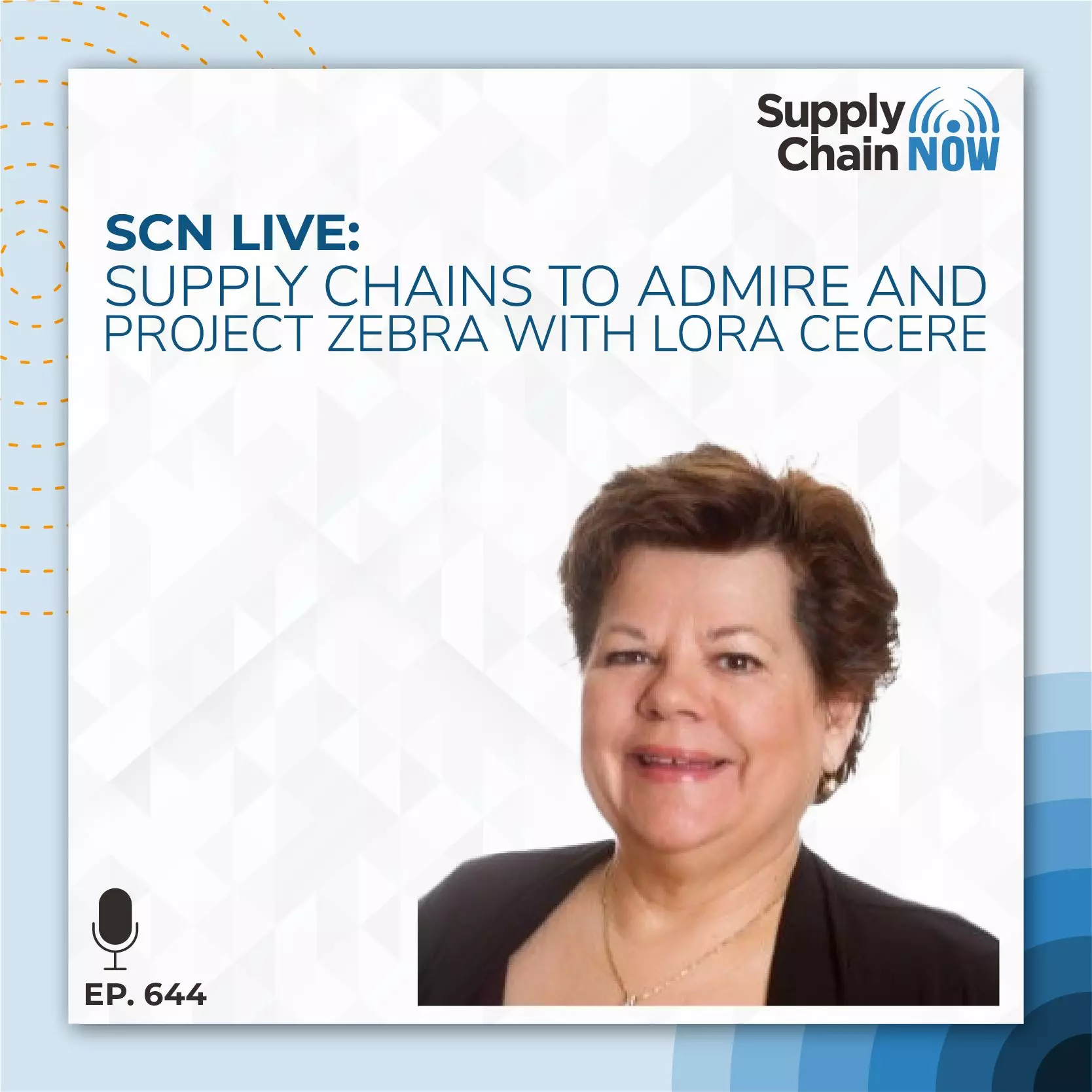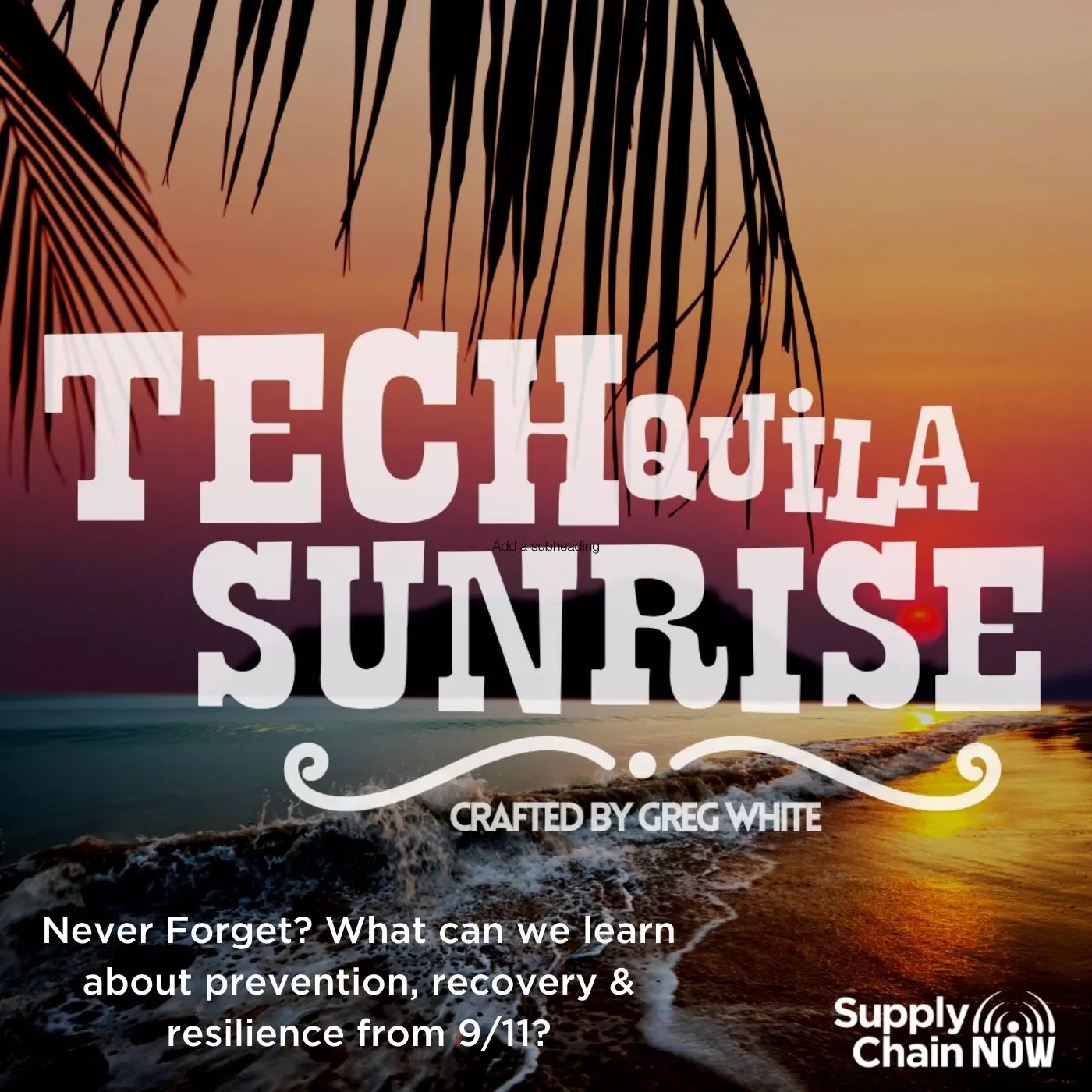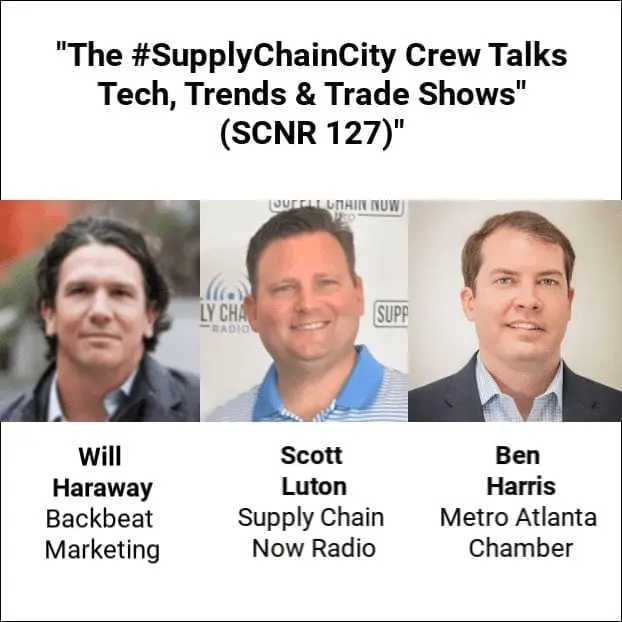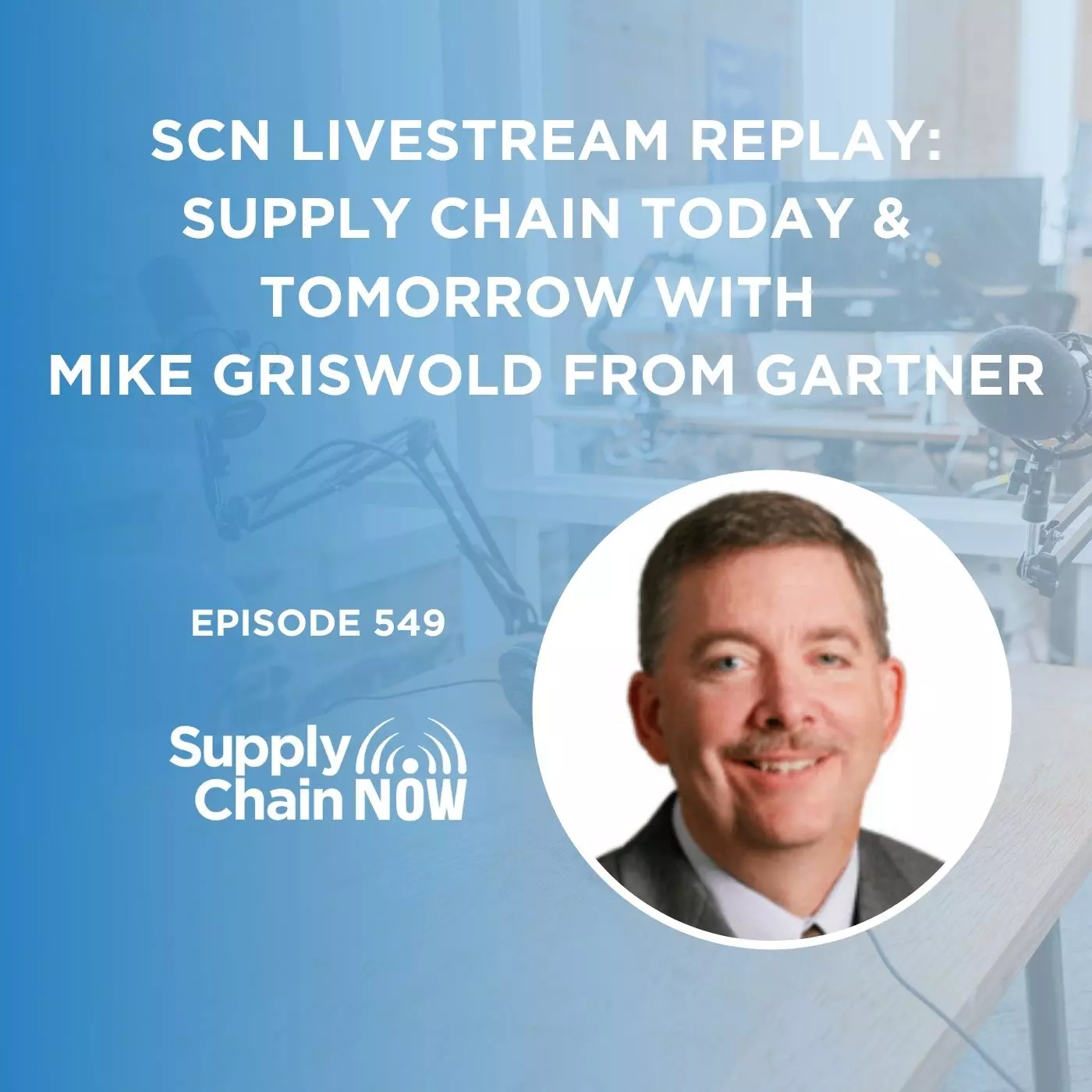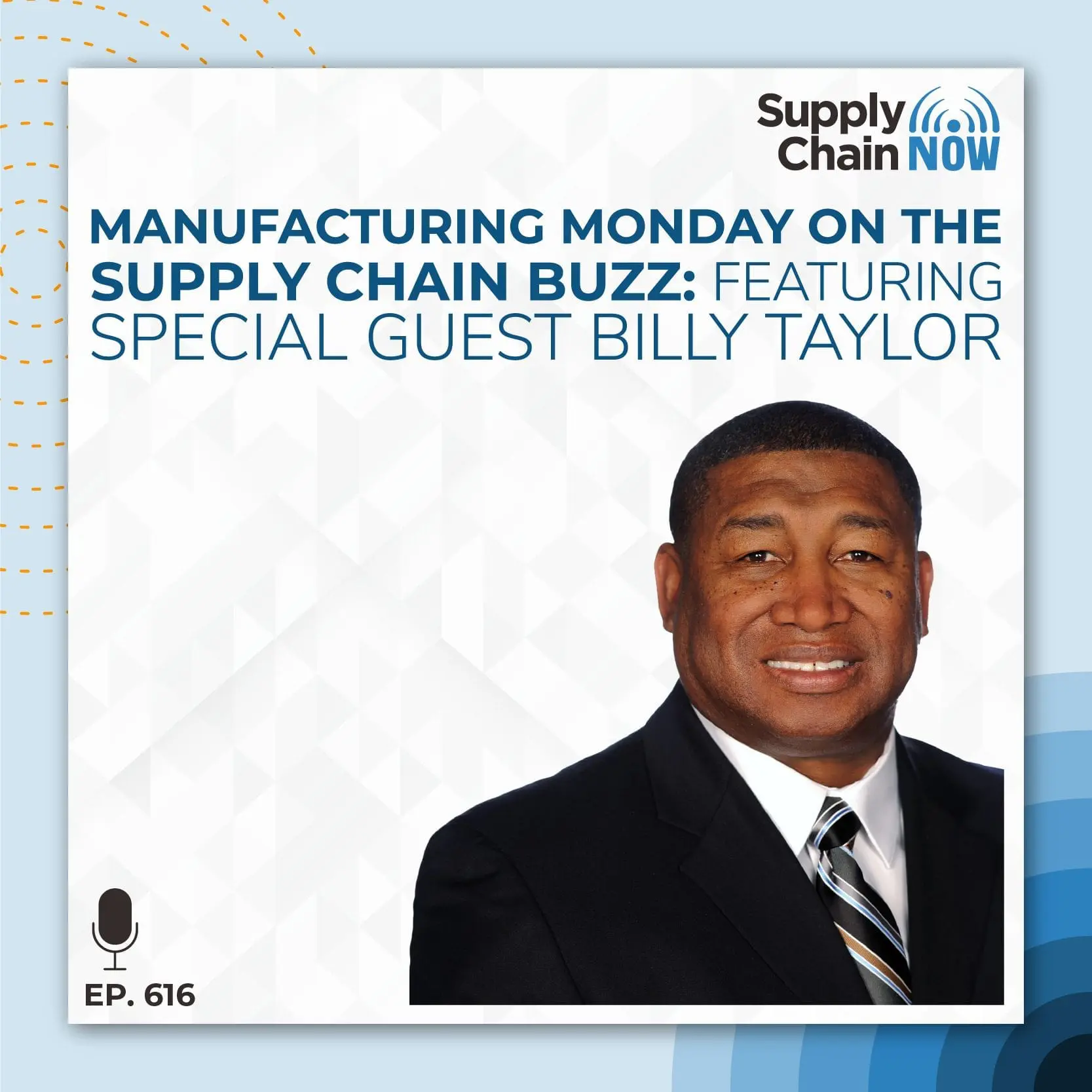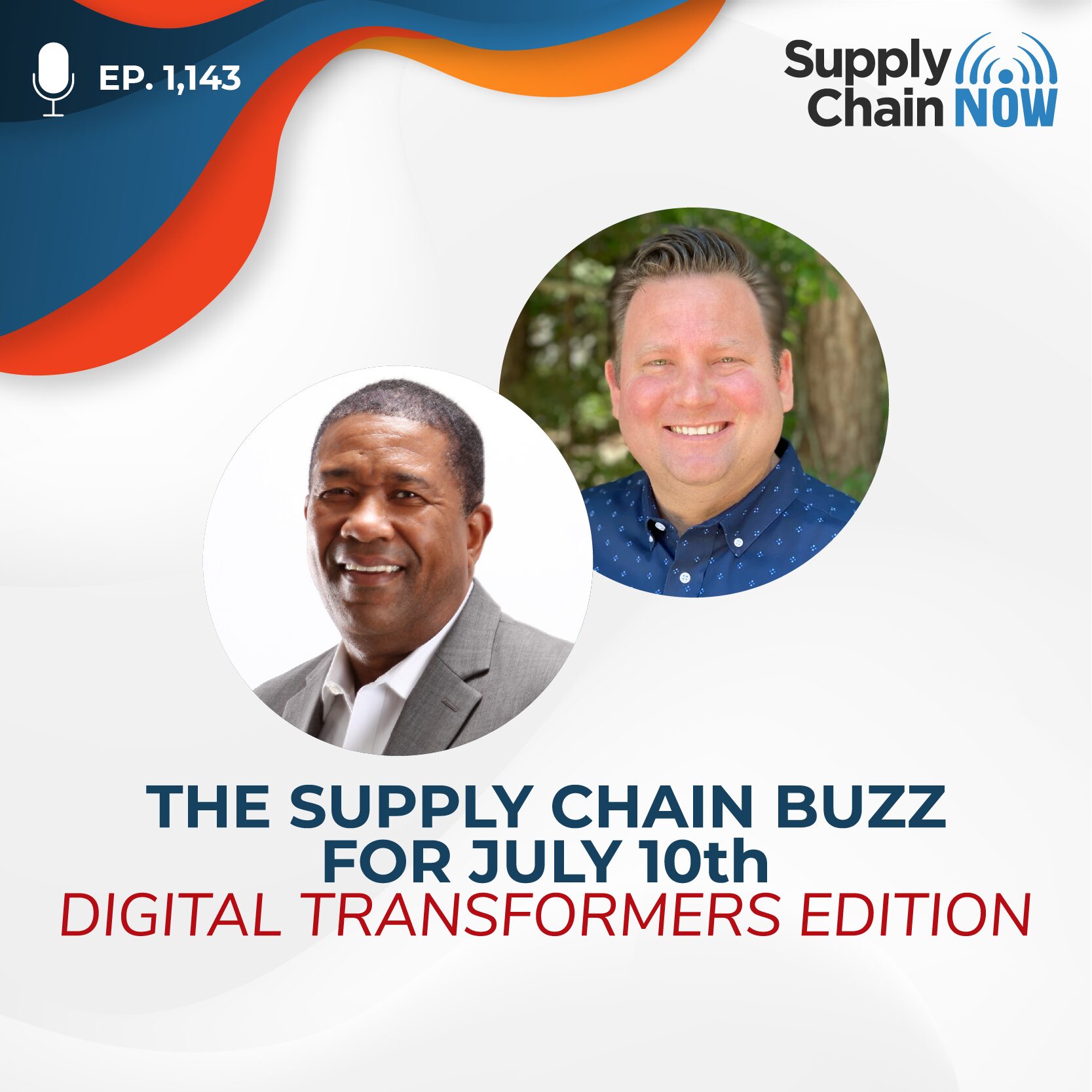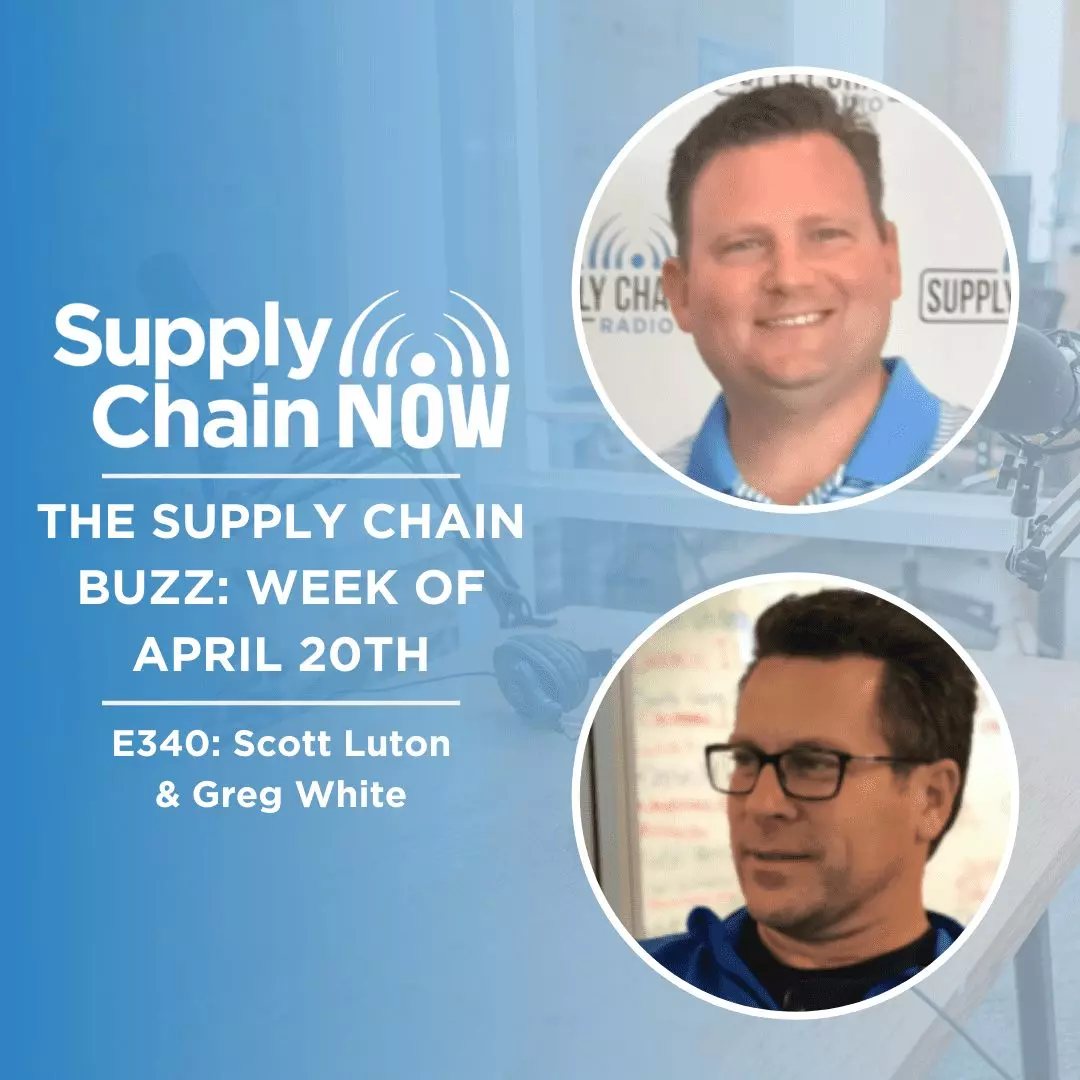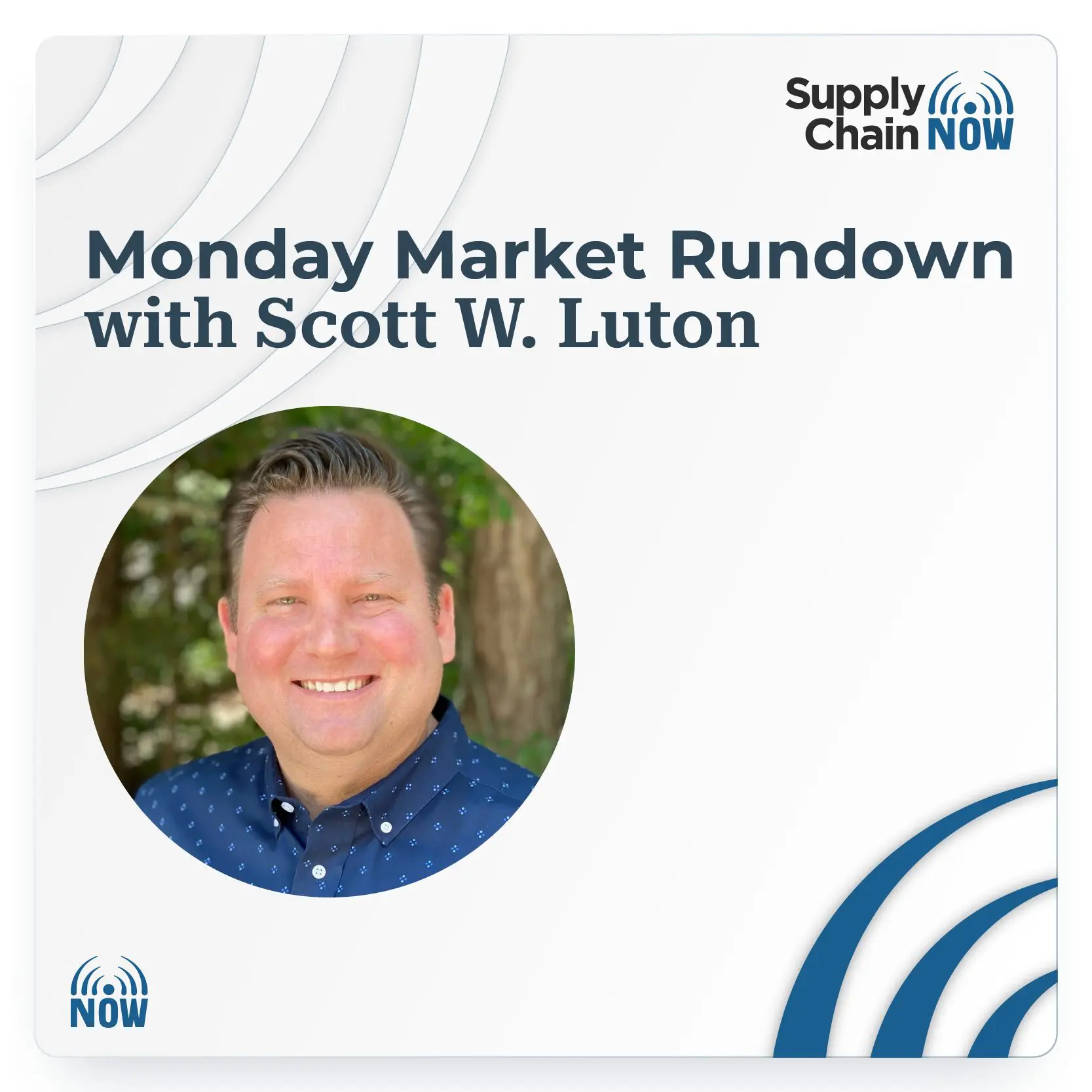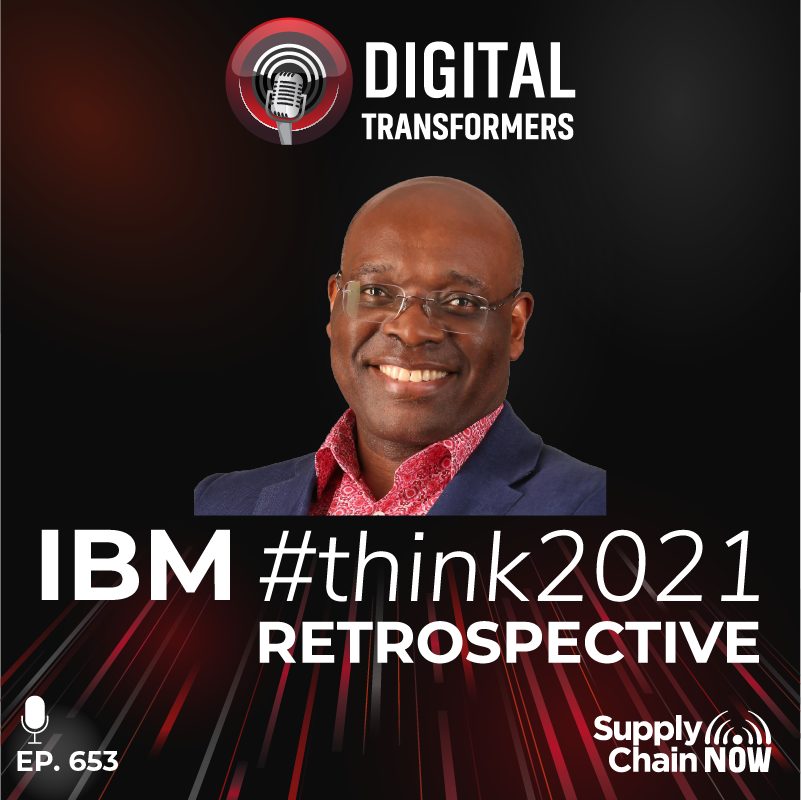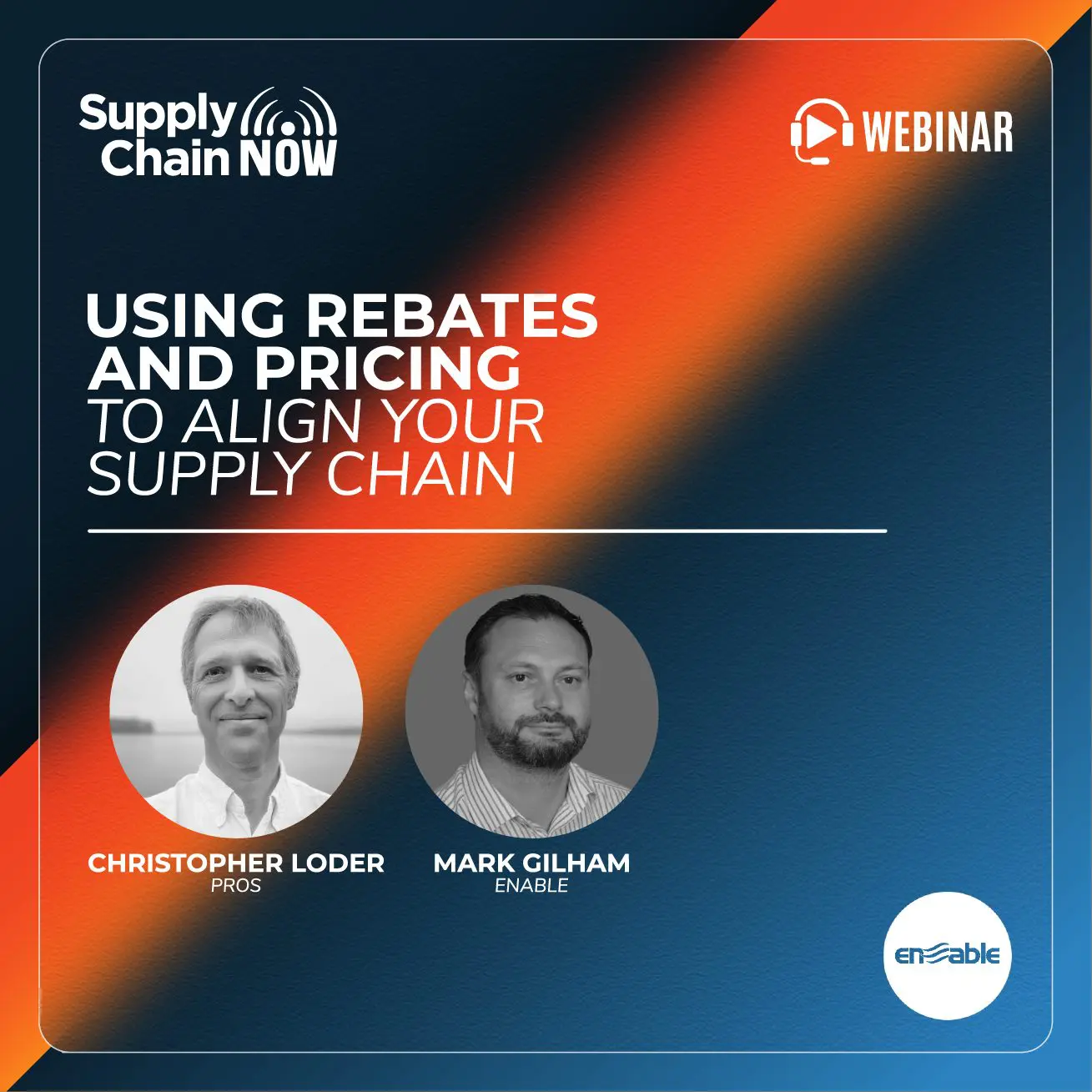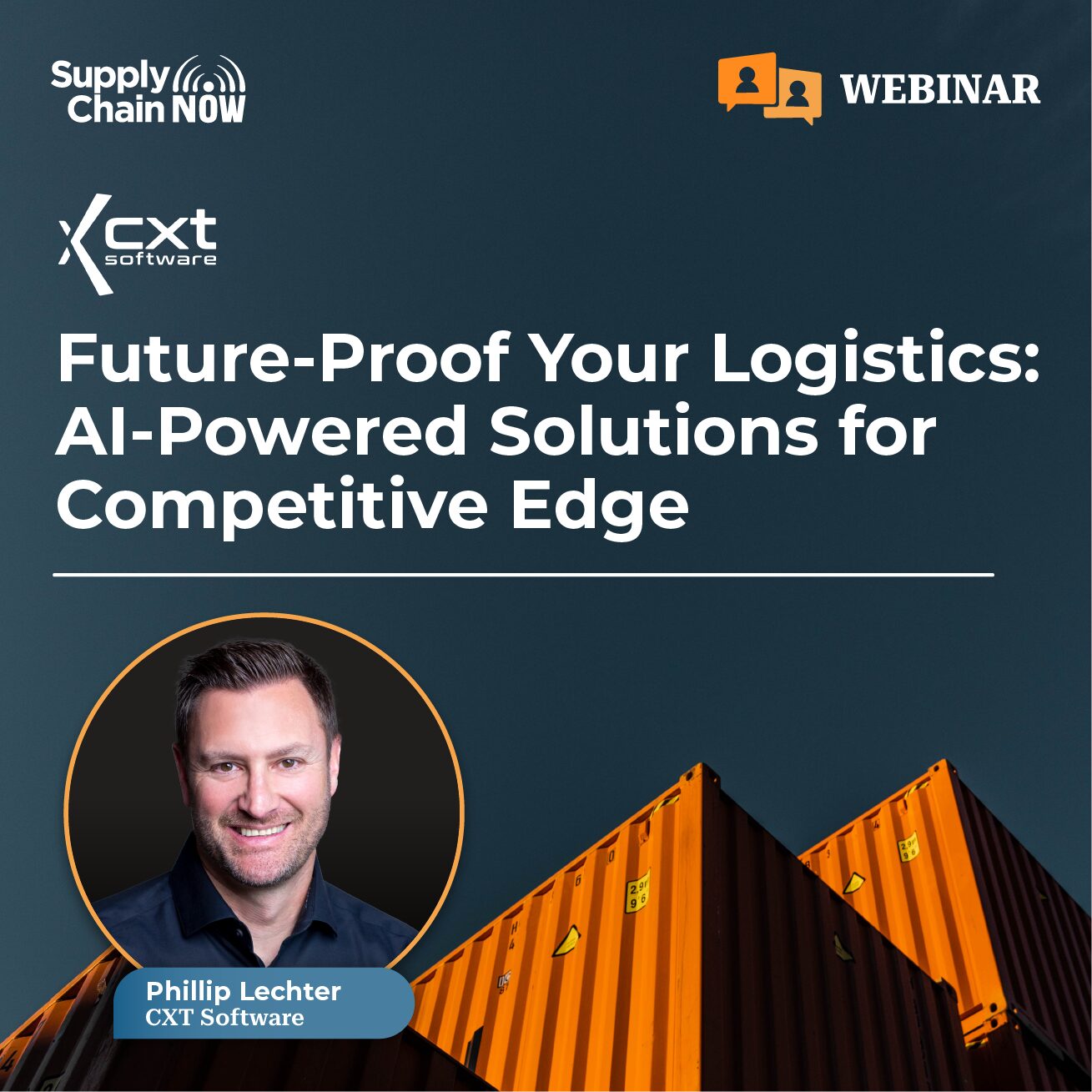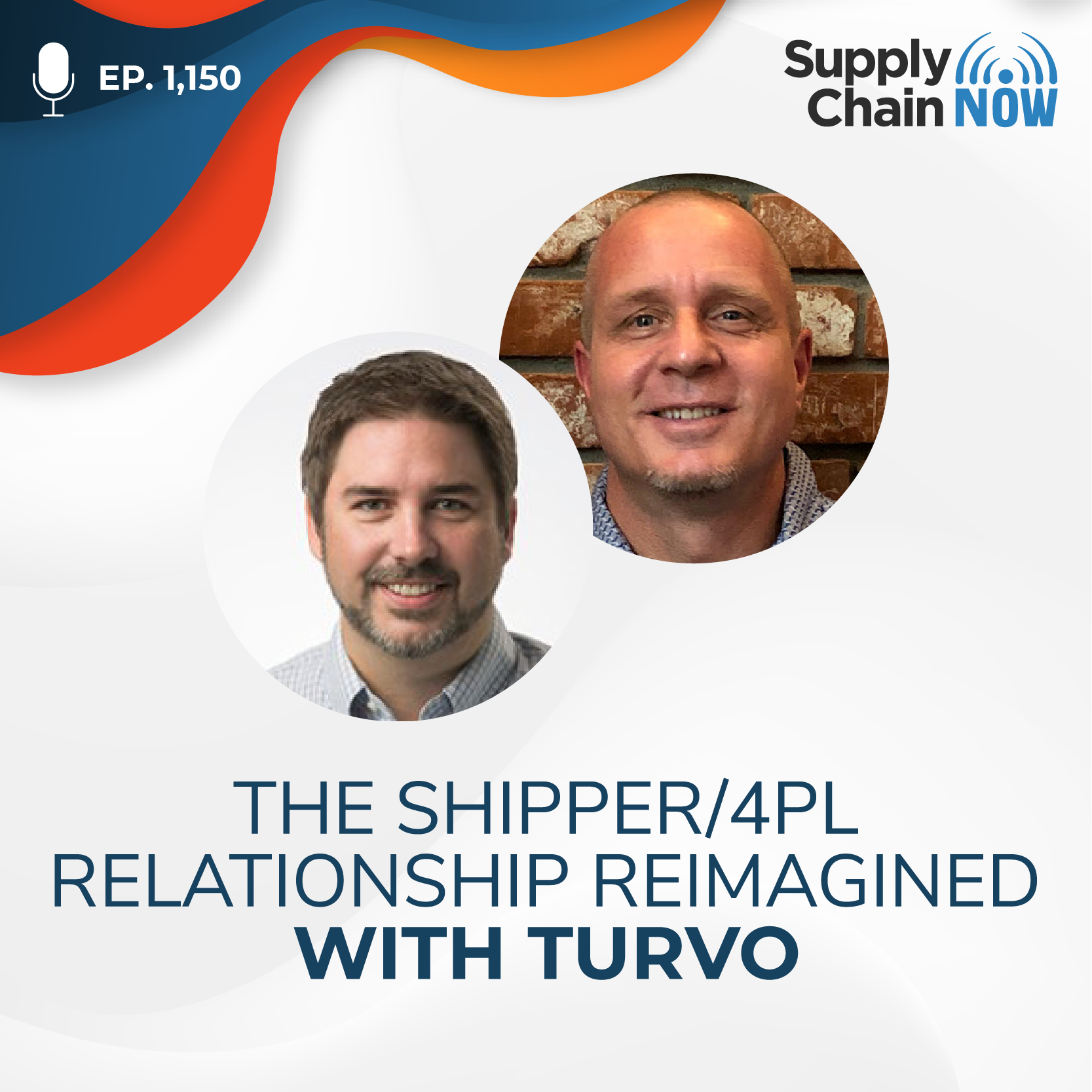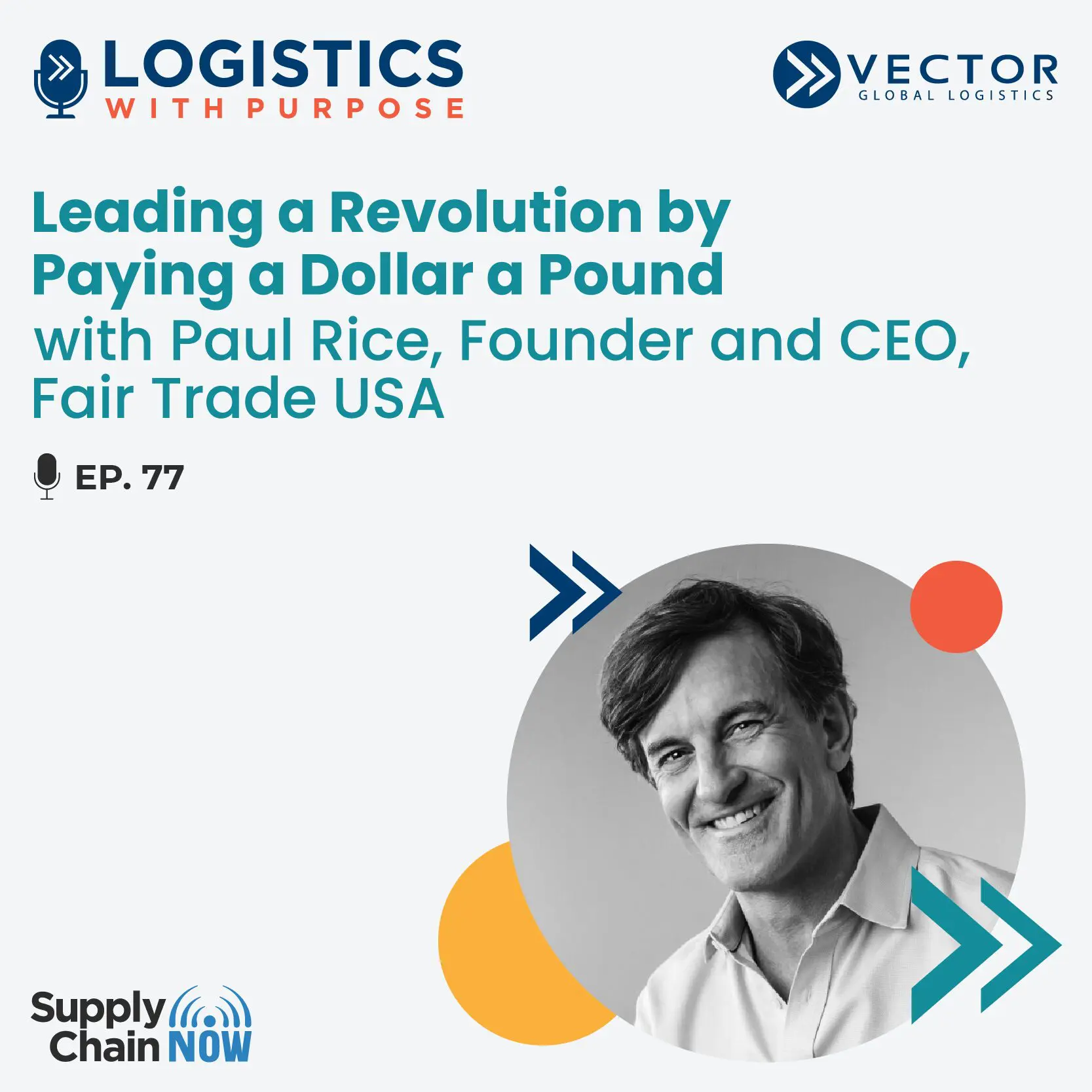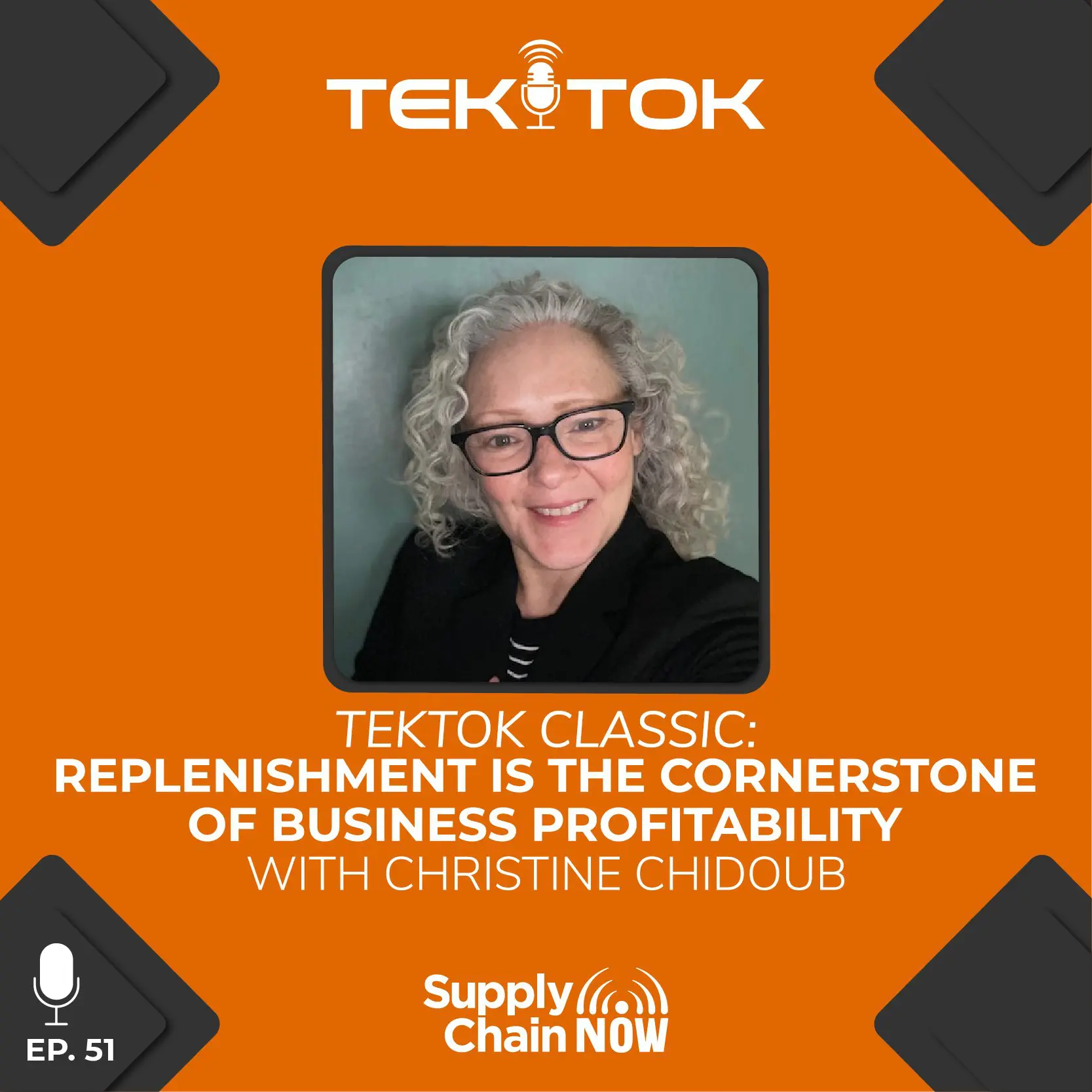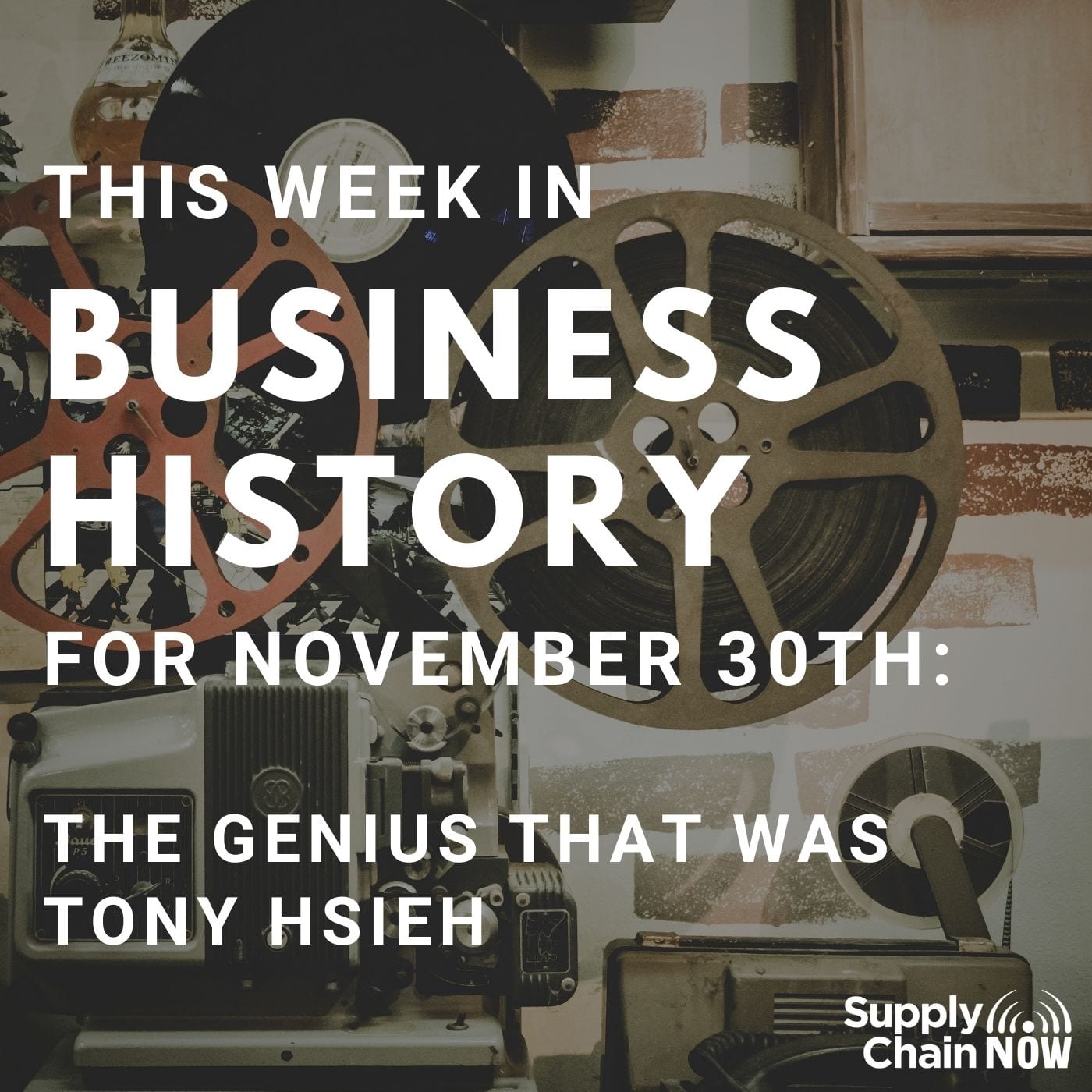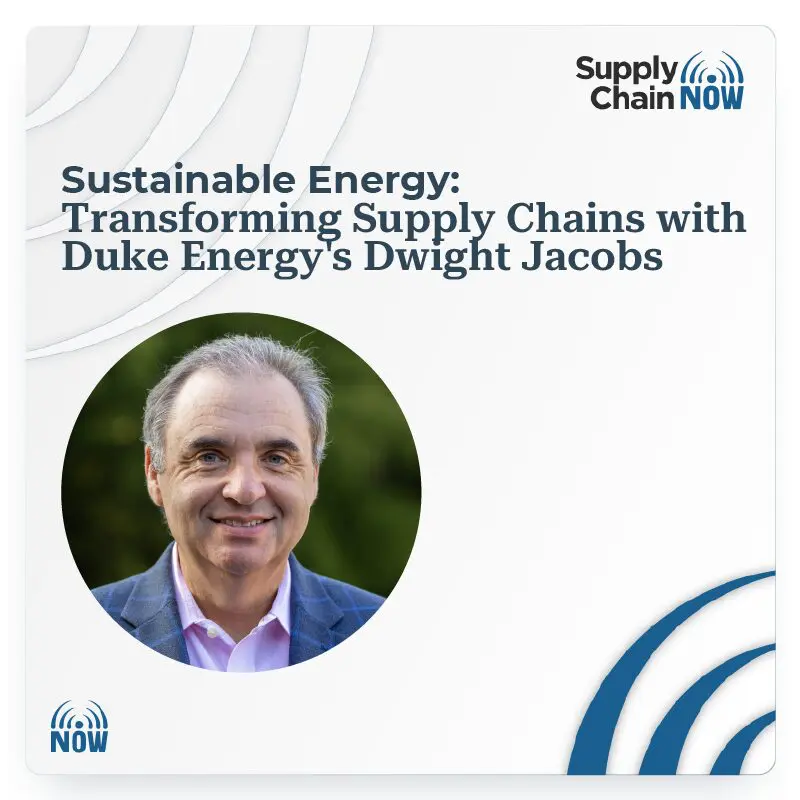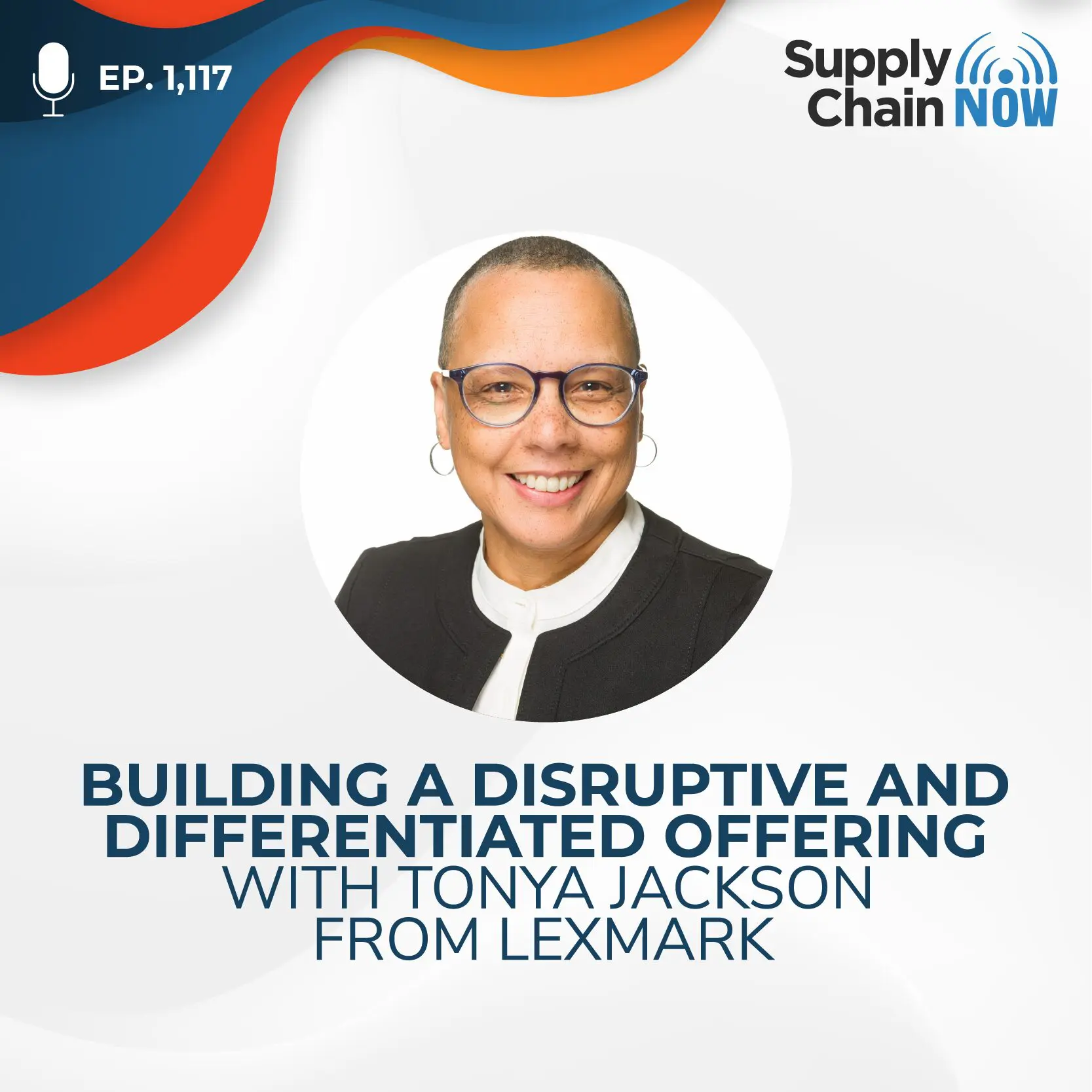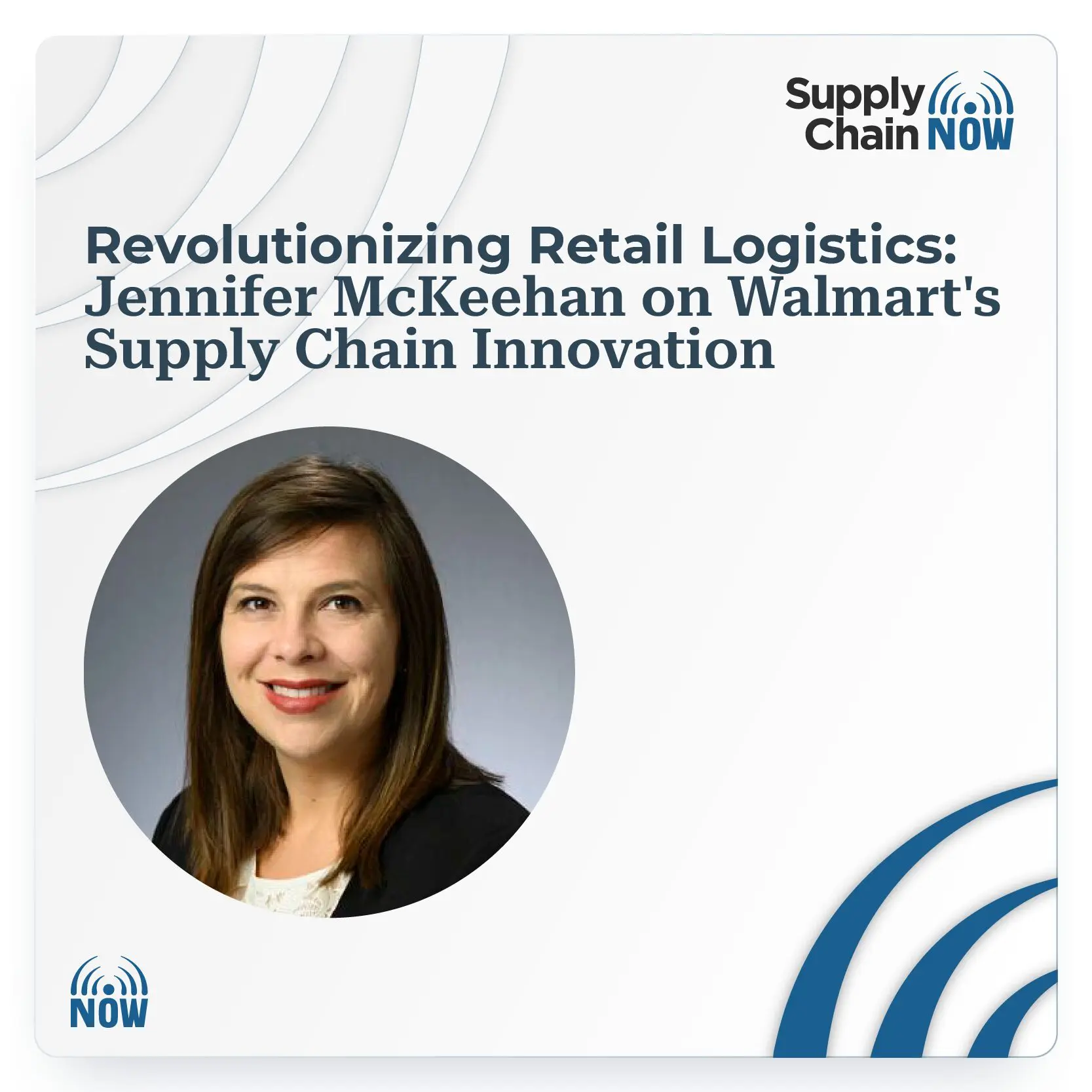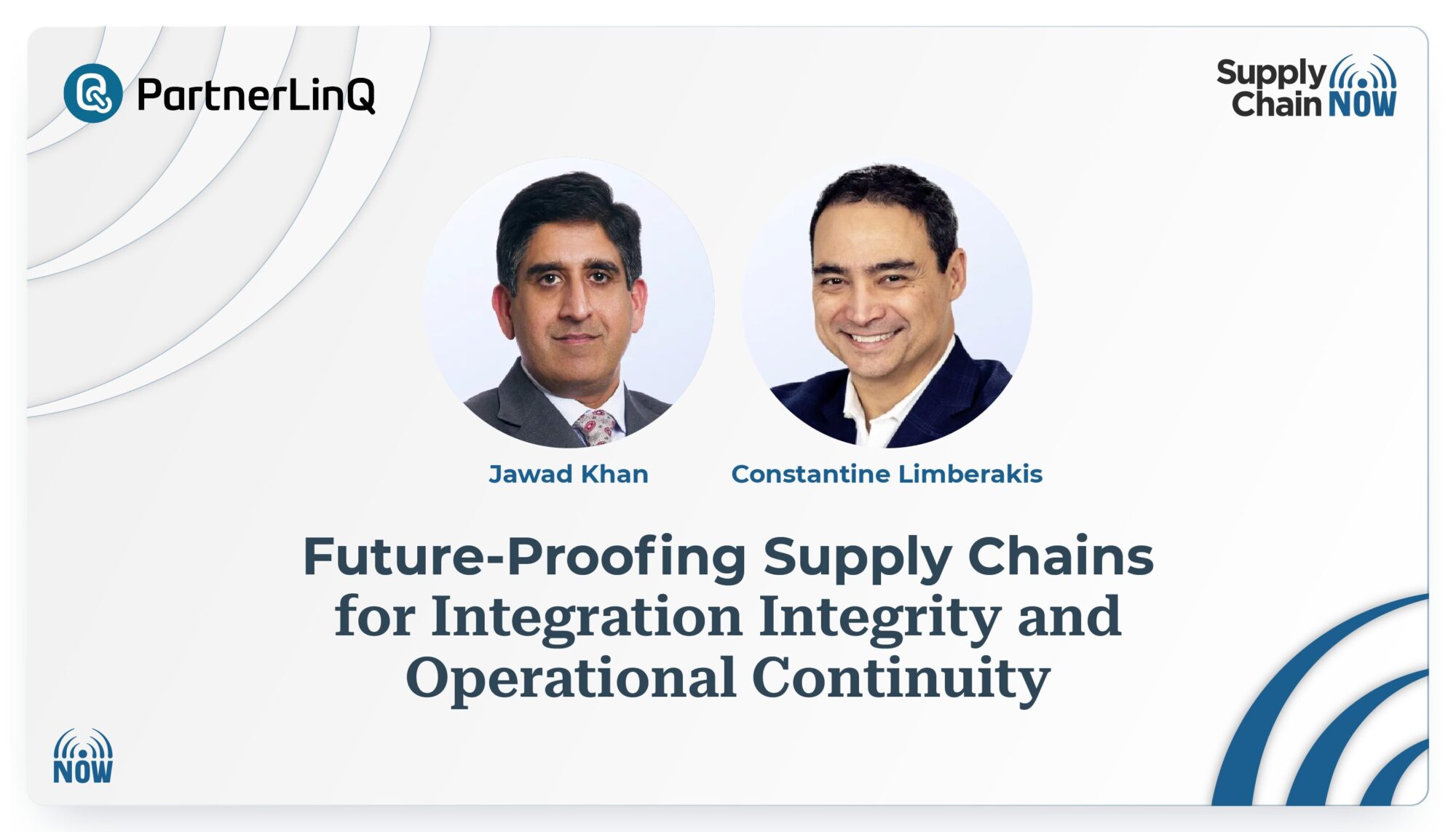
The more things change, the more they stay the same. I know that's a little cliche, but the challenge here is the ongoing evolution of technologies are continuing to be robust... you have to always be nimble and agile to be able to quickly adjust.
-Constantine Limberakis
Episode Summary
Discover the key to transforming your supply chain for the digital age right here! In this episode of Supply Chain Now, hosts Scott W. Luton and Kim Reuter are joined by Jawad Khan and Constantine Limberakis from PartnerLinQ, who bring their extensive expertise to the table, discussing revolutionary strategies to future-proof supply chains amidst the shifting landscapes of global trade and technology.
Listen in and gain a deeper understanding on how advanced technologies like AI can drastically enhance decision-making processes, optimize supply chain planning, and provide a competitive edge. Learn more about the necessity of resilience and agility in supply chains, emphasizing the critical roles of connectivity, integration, data-driven strategies, and more!
Episode Transcript
Transcription
SUPPLY CHAIN NOW | PARTNERLINQ
Narrator [00:00:04]:
Welcome to Supply Chain Now. The voice of global supply chain. Supply Chain Now focuses on the best in the business for our worldwide audience, the people, the technologies, the best practices, and today’s critical issues, the challenges and opportunities. Stay tuned to hear from those making global business happen right here on Supply Chain Now.
Scott W. Luton [00:00:32]:
Hey, good morning, good afternoon, good evening, wherever you may be. Scott Luton and Kim Reuter with you here on Supply Chain Now. Welcome to today’s livestream. Hey, Kim, how you doing today?
Kim Reuter [00:00:42]:
I am doing great. Excited to be here. One of my favorite topics it is.
Scott W. Luton [00:00:46]:
And I’m glad you’re here as well. I can’t wait to get your take on our topics here today because, folks, we got a great show teed up. We’re diving into a conversation focused on the importance of not just future proofing our supply chains, but leaning into this tremendous opportunity we have with new, innovative technology to truly change the game, enabling and empowering our people to take the organization to all new, all time heights. And, Kim, better taking care of the customer. All right, so want to welcome in our featured guests here today Jawad Khan, Founder and CEO at PartnerLinQ, and our dear friend, wonderful dynamo, Constantine Limberakis, Vice President, Product Marketing, with PartnerLinQ. Hey. Hey, Jawad. How you doing?
Jawad Khan [00:01:29]:
Good, thank you. Thanks for having us, Scott.
Scott W. Luton [00:01:32]:
You bet. Great to see you. And Constantine, aka Dino. Great to see you once again. How you doing?
Constantine Limberakis [00:01:38]:
Great, thank you, Scott. And Kim, pleasure to be back.
Scott W. Luton [00:01:41]:
Definitely. We’re big fans. Big fans. I’m gonna have a Constantine tattoo on my left shoulder. We’ll have to check after this shot. All right, so welcome to y’all both. We got a fun warm up question I want to start with, because I tell you, down here in Georgia, it is like 70 degrees a day, sunshine. My flowers are doing okay.
Scott W. Luton [00:01:59]:
I’ve given up on tomato growing. It’s just a. It’s a gorgeous time of year. It’s festival season. No doubt. So this week you’ve got Vidalia Onion festival down in Vidalia in south Georgia. Yes. That’s an actual town.
Scott W. Luton [00:02:10]:
You got the Vermont Maple festival up in beautiful St. Albans. I think I said that right, Vermont. And out in Waikiki, Hawaii, you’ve got the annual Waikiki spam jam. How about that one? So I want to ask y’all, and, Juan, I’m gonna start with you. What is one festival or event that you and your family, your friends look forward to this time of year?
Jawad Khan [00:02:31]:
Perfect. I mean, this is the best time of the year to really flock to the Tulip Farms one particular festival we’re looking forward to go almost every year. That’s called the Princeton Art Bazaar, the wonderful Princeton Art Council, they organize that every year and it’s a lot of common people like us, you know, they bring their creation, rennet, the tents and teals. It’s a good, lively community rent, and it’s wonderful to be there every year.
Scott W. Luton [00:02:56]:
Oh, love it, Jawad, I love the tulip farms you mentioned, and I love how you described the art festival. Cause you are a man of the people and gosh, I got kindred spirits there. All right, so, Constantine, as the proud son of Chicago, I can’t wait to hear what you’ve got coming up.
Constantine Limberakis [00:03:12]:
Well, at the end of June every year, we have a huge greek fest at St. Nictario’s greek orthodox church in Palatine. But this is like a season, it starts in late May and it goes all the way through into September. So if you like mediterranean greek food, I end up helping run the event. Usually I’m running the bar. It’s a lot of fun. We have a drive through that comes through so people that can’t go to the event actually come and pick up their food. It’s a huge thing and it’s a lot of fun and it’s something we look forward to.
Scott W. Luton [00:03:42]:
Oh, that sounds wonderful. And I bet the food, the drink and the camaraderie, and the celebration of greek traditions and stories, I bet is just a wonderful, beautiful event. So I look forward to the pictures coming soon. Kim, you’re not getting out of this question. So what is one of the festivals or events you’re looking forward to coming up soon?
Kim Reuter [00:04:01]:
I’m up here, down here, over here on the Chesapeake Bay. And so one of the unique festivals that we have here are called the workboat races and the docking competitions.
Scott W. Luton [00:04:09]:
Okay.
Kim Reuter [00:04:10]:
That’s where they race the work boats we use for oysters and fish and all the work boats on the bay. And then the docking competitions are very exciting. It’s a time to bend and it’s how fast can you dock your boat?
Scott W. Luton [00:04:21]:
It’s good. I’ll tell you, I’ve ran through a couple trailers almost in the back of trucks before, so I’m glad that was before social media. Him, Constantine and Juan. That sounds like a wonderful time of year, so we look forward to that. Speaking of wonderful, we got a lot of great stuff to get to here today. I can’t wait to share Jawad and Constantine’s and Kim’s perspective with our audience. And I will start with this. We cannot get enough context in this fast moving world, it’s really important.
Scott W. Luton [00:04:46]:
So I want to start there with this discussion. So Jawad, if you would tell us briefly about what PartnerLinQ does and just a smidge about your background.
Jawad Khan [00:04:53]:
PartnerLinQ is a multidimensional, holistic, essentially platform to help companies drive continuous innovation and forward progression in terms of how they look at their business, right, every company, pretty much the way we look at it, every company has a physical supply chain where they have their merchandise, their warehouses, their flow of materials, their equipment, their people, everything else. But then they have a digital view of their supply chain, which they built through their systems, through their applications, through how those applications interact within the walls of the enterprise and the outside world, then how they frictionlessly, how expediently and how much agility these companies can actually stitch their digital view of supply chain consistent with their physical supply chains, so that they can get to the information fast, they can maintain full control on how their supply chains are operating, aligned they are with their strategy as they move forward. And lastly, how quickly they can anticipate, intercept situation, the events and how quickly they could react on it in a very organized and planned manner.
Scott W. Luton [00:06:03]:
I love that. Jawad, hey, really quick, just a smidge about your background. I mean, deep in technology, deep in supply chain. What tell us about your journey before.
Jawad Khan [00:06:11]:
The formation of PartnerLinQ. Last year I was the president of it solutions and services at Visionet. He was there for well over two decades. And I started Visionet as a product engineer. And with a geeky kind of coming back from computer science background, we were working on developing the program analysis automation kind of tool set. So a few years later I moved into the information systems and we did a lot of work in almost all aspects of supply chain, from data to pre production, business planning to erps to, you know, anything, you name it. And I think that helped us a lot in terms of building that perspective around if we build an approach and technology that can help these companies move the needle forward to be in the cloud age, in the age of AI, and in the age of this advanced automation, which is upcoming.
Scott W. Luton [00:07:03]:
Jawad, I love that. And I love earlier in your response, you use the word frictionless, and I can’t wait to dive a lot more into that through this discussion. Constantine hey, really quick, remind our audience a little bit about your background.
Constantine Limberakis [00:07:15]:
I started my career in the world of consulting, management consulting at Anderson, got my teeth cut in ERP implementation work and procurement. So I got a lot of systems implementation work and consulting and my over time gotten involved in the analyst world. So I’ve been an analyst in the field of supply chain and procurement and then also gotten involved on the solution side. So I’ve kind of seen both sides, services, product development, and it’s just been an amazing journey and being here at PartnerLinQ to see all those things in terms of how technologies are evolving, how services are evolving, how supply chains are evolving, and being able to play part in helping announce and evangelize, if you will, the fruits of good technology and best practices, organizations that are looking to improve what they do. So what’s got us here?
Scott W. Luton [00:08:03]:
Those fruits are going to be almost as tasty as any olives or other fruits that will be available in the greek festival. So, hey, kev, I tell you, the amount of technical, our technology know how and holistic supply chain expertise here as they’re clearly building a platform to optimize the ecosystem, which is, as simply as I could put it, pretty impressed, huh?
Kim Reuter [00:08:23]:
Supply chain touches everything, and I tell all of my clients, everyone I talk to, supply chain is everything. And companies who aren’t thinking about it that way are making mistakes.
Scott W. Luton [00:08:33]:
Well, and being able to do supply chain differently. Leveraging this technology we’re going to talk more about is such a massive opportunity. So let’s continue level set a little bit here, and then I’m going to come back to you here, because there’s no shortage of things going on across global supply chain. What are some of your observations in terms of what’s going on in this ever changing environment that we find ourselves in?
Constantine Limberakis [00:08:55]:
Well, I think one way to put it would be the more things change, the more they stay the same. I know that’s a little cliche, but the challenge here is the ongoing evolution of technologies are continuing to be robust. I mean, the latest is what we were seeing with AI, with Gen AI, and some of these types of new technologies around IoT and resurgence of blockchain. At the same time, organizations have to keep pace with what’s going on within their organizations because they have these legacy challenges and they’ve got this stuff that they’ve acquired over time, whether through mergers and acquisitions or whether through divestiture and all these changes in between. So the deal here is that you got to always be nimble and agile to be able to quickly adjust. And I think what we’re going to be talking about here is one of those things is the reason why PartnerLinQ fits so well. It’s because it’s able to accommodate that constant change. Right.
Constantine Limberakis [00:09:47]:
Change is constant. How do you deal with that and that’s supply chain kind of what you’re saying, Kim.
Scott W. Luton [00:09:51]:
That’s right. We need a whole new pace car. If supply chain was a race, we got to upgrade our pace car and go a lot faster these days. Right? To wad, that was a great way to level set that Constantine was sharing. What would you add in terms of this crazy environment that we continue to find ourselves in?
Jawad Khan [00:10:07]:
Last four or five years have been dramatic for global supply chains, and I think theyve been unprecedented in a way that even though the sourcing destinations have been changing and trends have been evolving constantly in a single direction until pretty much four or five years ago before the COVID hit. But that changed a lot. Suddenly this shift from very lean supply chain execution mentality over to resiliency and then moving the pendulum back towards the lean and then hovering in between, I think that has created a very, very interesting dynamic based on what Constantine said. Absolutely. The change is constant. The index of change has been changing fast itself. So there’s a lot more movement. The need to be dynamic is probably more than ever before.
Scott W. Luton [00:10:58]:
Yes, well said Jawad. And those legacy challenges that Constantine alluded to, I think that’s a really important point there, Kim, hearing how they both describe the current environment out there. Your thoughts?
Kim Reuter [00:11:09]:
Totally agree. Supply chain is moving faster than ever. It has to be more nimble than ever. When I got into this business way back when we had like carbon copies, supply chain was a lot different. It moved slower, it wasn’t particularly predictable. You didn’t really know what you’re getting until you got your papers. Things have changed. And in addition to that, the consumer is really demanding changes now too.
Scott W. Luton [00:11:29]:
Well said, Kim. And hearkening back to that age, there was a physical supply chain and there was no supply chain back then. Many other things are driving this pace, trying to meet new demands. So all of that, what you’re talking about, what we’re talking about, sets the stage for this next question. I’m start with you, Jawad, because when it comes to transformation in light of all of these factors, these new demands and all this change, it really answers this question. I’m going to pose you, but I’m going to get you to answer it anyway. Why must we do business? Supply chain technology, all of that stuff and more different today.
Jawad Khan [00:12:02]:
Joanne, there have been times in the recent past, let’s say last 30 years, where radical shifts happen. You look at back in seventies to eighties, the shift from the all custom systems running on mainframes to package software happen, right? The initial baseline version, the supply chain networks evolved. And then in nineties, the movement started towards the packaged erps, essentially, and to help companies consolidate. That was a radical shift, mostly fueled by the client service, server computing and the new open standards and everything else. Then came the Internet age. Again, another radical shift. Right. E commerce ensued and companies started to try to be more and more current in real time in their interoperability, not just within the walls of the enterprise, but the outside as well.
Jawad Khan [00:12:53]:
But then the current age, which is a very radical major shift, which is empowered by, enabled by cloud computing and rise of the AI. If you look at imagenet, late 1990s, fascinating piece of work, was difficult to monetize that because the compute was so costly. But now with the compute cost, it is becoming manageable. The AI has become the data driven. AI has become a dominant potential force in future, the cloud and data. The rise of both of these two requires companies to rethink and at least in our view, their approach, how they’re going to transform themselves just by replacing one point system at a time. It’s a kind of patchwork transformation. We’ve helped many companies do that, Jawad.
Scott W. Luton [00:13:44]:
All right, so you’ve earned a new nickname here. You’re the professor of supply chain. I love how you laid out that historical sequencing, you know, from packaged to Internet to the radical age where cloud and AI and other technologies, they’re forcing us, and this is a good shift, it’s just a challenging shift. They’re forcing us into this radical age. So will, said Jawad. Dina, what would you add to that? That’s pretty tough to add to.
Constantine Limberakis [00:14:06]:
Well, you got the technical side that Jawad talked about, but then you’re looking at the actual businesses themselves, right? So this is where we’re going from the policy regulation business. You know, what’s happened in the world in the past 30 years with the rise of Europe, EU, you’ve got the change in the world with regard to the fall of Soviet Union, rise of China as a manufacturer. And now we’re even now shifting into seeing China trying to be its own ecosystem and no longer the manufacturing. We’re seeing these things shift. These things are happening. And as you use these technologies, how quickly these supply chains now are shifting, it’s almost more expedient and more important for these organizations to use these technologies to be able to make those changes. I’m changing from China to Vietnam. I’m shifting.
Constantine Limberakis [00:14:57]:
I have geopolitical risks that are quickly arousing. I’ve got this data now that I didn’t have access to before. And so now there’s no excuse for saying, well, I’m out of stock because I didn’t have the visibility. Well, what’s your issue? You need to be using these technologies at the speed, I think we say this, Jawat, at the speed of business, at the pace of business, that’s not changing. And so it’s a confluence of those two things that we’re seeing.
Scott W. Luton [00:15:21]:
The expectation, I think, is changing in terms of the speed that our customers, and in some cases our suppliers, other parts of ecosystem expect us to be able to operate at Chem before we move forward. Weigh in. What did you hear there with Jawad and Constantine?
Kim Reuter [00:15:35]:
I agree with everything that they had to say about it. When we look at a company, especially an e commerce company, supply chain costs and inventory costs are the biggest cost. And so driving those down, managing those, are essential to any successful business today. And also, as you mentioned, Scott, the customer experience is, customer expectations change dramatically. Customers want their product right away and they expect it to be shipped for a reasonable, if not cheap, cost.
Scott W. Luton [00:16:00]:
That’s right. Well said, Kim. We got some good momentum here. I can’t wait to keep moving and get into some ways we can do this right using innovative technology, because we’re not just talking about all the challenges, we’re talking about some solutions and some good ideas, proven ideas as well. So with that in mind, Jawad, you founded the organization when you built the PartnerLinQ solution, right. To meet a lot of these factors and issues and demands that we’re all referencing. You had a list of capabilities that you very purposefully wanted to build into the platform, share a couple of those elements and why you viewed them as absolutely critical for your customers.
Jawad Khan [00:16:39]:
To what I mean, PartnerLinQ is a multidimensional platform. It’s not one single isolated tower of capability, which is a conventional way of building systems. You put a lot of towers and then you figure out a way to connect them. And that orderly kind of is more aligned with a very fundamental philosophy of cloud computing, which is unifying the capabilities and then enabling them through digital means to all stakeholders, which may be the business stakeholders, means folks in the operation, or that could be the people who enable those capabilities within the context of specific industry for a specific organization. Right. So these are all the dimensions. And then we wanted to cut across data, wanted to cut across connectivity across the enterprise systems, and then bringing in the true organizational context into converting the data coming from systems and sources and organizations into a truly digitally connected data on which machine driven augmented automation gets work. And lastly, very importantly, second part of this was that we do it in a way which is agile.
Jawad Khan [00:17:48]:
That means it should not be only the responsibility or the capability of hardcore technical developers to be able to point solutions for the people in that organization, but rather the analysts, the empowered users, the trained users in the business. They should be able to actually use that semantic data sets and agile capability, workbenches and studios to be able to really rapidly respond to businesses requests. In technical term, we call the low code no code approach, essentially enabled through composability and enabled through pre built industry specific components. It’s a new mode of a getting it approach, which is more possible now than ever before. And that’s really what we trying to drive.
Scott W. Luton [00:18:33]:
Jawad, there’s a couple very specific elements I want to get you in, Constantine, and of course Kim to weigh in on. When we talk about customization these days, it’s not just off the shelf and you plug it in and it stays in that state, but it’s highly configurable. Why is that important?
Jawad Khan [00:18:50]:
It’s very critical. No two companies are the same, right? Every company exists because they have a unique skill set, they have unique environment of collaboration with their customers, with their suppliers, with their service providers, which they have configured in very specific way to create that unique existence of their business. From the digital supply chain constructs perspective or technology perspective, there may be a lot of things which are common, but they never be exactly the same. But we believe we have pretty successfully nailed it is that exploit that commonality of assets and the architectures and the functional capabilities across businesses and make them so configurable that different businesses can still tailor to those specific capabilities, to their own unique needs, their own configuration of their supply chains, physical that their system landscape, both at the same time.
Scott W. Luton [00:19:49]:
I love that. Constantino, get your quick comment here. You know, Henry Ford, as we all know, said something, I’m a paraphrase, said the customer can have any color they want as long as it’s black or black, right? And fortunately those days have changed. Constantine, your quick thought on the importance of customization these days.
Constantine Limberakis [00:20:07]:
Yeah, the customization, actually, I remember back in the day when we were doing implementation work where customizations at some point became a dirty word, where it’s configuration, right? And that’s important because that’s the whole idea. When you have client server, you had instance behind the firewall versus in the cloud, it’s just another instance. That’s all tech framework. Now this is why this is important. In what Jawad was talking about, we have two components of how we look at ourselves, we have within the four walls, we have outside of the four walls. And constantly those two things are always changing. You’re going to always have new systems coming in, new acquisitions, new mergers, new divestitures. You constantly have to have those things in sync.
Constantine Limberakis [00:20:49]:
But then your business that you’re working with, your business partners, whether your customers or whether your suppliers, they’re going to have a whole wide range of different solutions that they are integrating with. And there have been certain protocols and certain types of things that we’ve been trying to instantiate. We’re going to talk a little bit about EDI and then API integrations, and all these things have created this plethora of mosaics of different ways of doing business. And no one has said, yeah, you have to 100% doing it one way because businesses are unique and have a different culture, business, industry evolution and history. I’ll throw the history in there that requires that agility that Jawad is talking about. It’s always moving, and you’re going to always need to be able to keep those things in sync.
Scott W. Luton [00:21:37]:
Yes. All right. So, Kim, back in the first part of Constantine’s response, there’s, you’re like, oh, that was such a. Customization was such a dirty word back in the day. You’re commenting, it came out of my.
Kim Reuter [00:21:46]:
Chair on that one. So I’ve done tons of tech implementations. Some of them I chose, some of them I didn’t choose. And anytime I see any company walking down this road where, oh, we have to customize, we have to customize, we have to customize, you get off upgrade, pass, the technology becomes hard to manage and support long term. And to your point, every company thinks that they do it a special way. Everybody has their own special way that they’re going to do it. So having something that’s configurable is a huge step above something that requires customization.
Jawad Khan [00:22:16]:
And Kim, if you don’t mind me adding configurable and reusable.
Scott W. Luton [00:22:23]:
Love that, Jawad. All right, so, Jawad, we got a couple of things to get to, but scalability and that cloud native architecture, those are purposefully built into your platform. Tell us briefly about why that’s important.
Jawad Khan [00:22:35]:
Sorry. I’m going to go back to history a little bit again. I have really seen data centers back only 10, 15, 20 years ago, not that long ago. It’s amazing how much effort and time and costs enterprises had to take to manage build their own data centers. And I’ve personally witnessed how the smaller companies with less resources struggled to operate their data centers. It was just a constant pain. And how much problem it caused for companies to scale their system than their data just because of lack of ability to manage infrastructure. And that I probably cannot appreciate the cloud computing more.
Jawad Khan [00:23:12]:
It’s such a radical game changer in last 1015 years and now that especially has matured, particularly starting 2017 onwards, 18 onwards, that it puts the whole game into a different coordinate completely. Now back to your point, as we move forward to drive deeper. Next level of digitization, next level of decision automation. To achieve next level of visibility, you need a lot more scalability, good power. Your storage power has to be just at a whole new level. The scalability security, two most important fundamental enablers.
Scott W. Luton [00:23:52]:
If folks out there, I’m sure you all can relate. If cybersecurity and security in general doesn’t keep you up at night and make you lose a little bit of sleep, you might want to check your pulse because it is quite a challenging environment out there. Hey Constantine, when it comes to that scalability, because these businesses are growing, their needs kind of evolve a bit. Talk to us about how important that is.
Constantine Limberakis [00:24:10]:
When Jawad talks about that in terms of the smaller guy, that’s always been something on my mind. And having worked in the industry, we always talked about enabling your suppliers. If we’re talking about the upstream part of the supply chain, you got the small guy and then you got some really large organizations. And so that it’s not a fair playing field. And oftentimes you might have some real specialty requirements or specialty suppliers that just don’t have the capacity. And I can’t tell you how often we have these conversations where they’re like, they’re not anywhere, even on the radar of being able to say, well, we still have flat files, or they might be sending things a certain way through email. And it just amazes to me that that level of maturity is so different compared to some of the much more advanced capabilities that other organizations are having. And you have to accommodate all of that.
Constantine Limberakis [00:24:55]:
And so how are you able to do that without that stability and being able to make that scale, but make it then homogeneous in a way, so that that way you can create that information and have that data to say, okay, we know what our true supply chain looks like, from the most immature part of that ecosystem to the most mature, and be able to manage across all the entire continuum. Well, if you want to work with us, you have to use this and that’s it. I think those days are over. Say, how do we make this work? And then that’s where people see innovation, regardless of where you’re at, because we know there’s legacy technology out there that just can’t be erased and expunged just because we say we want to do that. And that’s part of the challenge here. So innovation keeps going on, but things are hard to get erased.
Scott W. Luton [00:25:43]:
Yes. Even with the biggest erasers from Texas, perhaps. I don’t know. You were saying they’re gone. You’re agreeing with Constantine? Yeah.
Kim Reuter [00:25:51]:
The days are like the six month integrations, they’re gone. The days of like, here’s our base software, and we’re going to customize everything just for you, and 18 months later, you might have some software that actually meets your needs. They’re gone. In the last five years, I’ve had the on prem conversation, believe it or not. Like, there are still companies out there with on premises. My thoughts are always like, hi, are you still doing on Prem? And a lot of the reasons they’re still not doing on Prem is exactly what we’re talking about today, is that they can’t get off of it. The technology is so old, the integration with new technology is so cumbersome, it’s just easier to limp along. And when we look at solutions like we’re talking about today, that’s what we need to help companies modernize.
Scott W. Luton [00:26:29]:
Well said. Hey, the mainframe just celebrated his 60th birthday just a couple weeks ago, right? Believe it or not, we had a parade somewhere across the globe. I’m not sure. All right, we got two more things of elements that you baked into the platform. And then I want to get into some of the outcomes, the powerful outcomes that all of this is powering. Everyone out there knows the value of streamlined communication and modern day collaboration. With that mind, you baked in some elements there into PartnerLinQ. Your thoughts there, Jawad.
Jawad Khan [00:26:57]:
That’s really where we started, essentially, right? And going a little bit into philosophy. I mean, there are many ways to look at anything, but based on our experience, we believe that if we look at the core of any enterprise architecture, in order to scale, in order to make the whole communication and flow and decision making, one way to look at it is as if data and connectivity, not just integration, they are probably two sides of the same coin. And if you can figure out a way to optimize data and integration through a common approach, and you can bring in the cloud scale scalability with all the configurations and reusability Kim, you were talking about, that really opens up paths to a whole new, different way to approach the enterprise. And what it does is that it would enable the organizations to kind of seamlessly put themselves on the transformation journey without having to replace their existing systems right from the get go. They can do it over time, right? They can put their fingers on the nerve essentially, right? In a good way. You need a whole ecosystem rapid development for managing those assets, for kind of bringing in that agility that Kim was talking about. Nobody has six months to do the integration. Very respectable customer approached us, one of the largest firms in the US in transportation, top five.
Jawad Khan [00:28:19]:
They wanted to lift and shift their entire supply chain ecosystem in less than five months. 1500 partners, we were able to do it.
Scott W. Luton [00:28:30]:
Completely agree. New mindset, new expectations, new possibilities. The art of the possible has changed so much in recent years. I’m going to keep going, joy. I want to get one more and then I’ll come back to Constantine and Kim and get their comments. But high visibility in general, but in particular when it comes to managing transactions, that, that visibility is really critical. You bake that into PartnerLinQ. Your thoughts here.
Scott W. Luton [00:28:51]:
Jawad.
Jawad Khan [00:28:52]:
If you look at the data value chain, that’s at least how I define it to be, data as a lifecycle and a value chain. We’re collecting data from all over the place. The question is, okay, well, how do we process that data? How quickly that data gets into the hands of people or processes for extracting information on timely basis? From visibility perspective, there’s a bunch of roles in any organization. If you look at supply chain, whether it is transportations or manufacturers or suppliers or distributors or more dynamic industries like CPG and food distribution and other firms, visibility is the key that really tells them what is happening to their product, what is the next action they need to take to make sure that the value and the monetization of the product inventory they have that can be optimized, they can reduce waste and they can serve their customers in time. Many companies in this time and age, you talk to their customer service executive and would figure out they’re not very happy with the visibility of their teams.
Scott W. Luton [00:29:56]:
Have, as you described it, visibility, but with answers and solutions and guidance. And that’s the missing link that I’ve seen quite a bit. Constantine, whether you want to refer back comment on this visibility we’re talking about or the collaboration we touched on a moment ago, your thoughts?
Constantine Limberakis [00:30:15]:
I think you were kind of initially talking about this connectivity idea, right, in terms of transaction management. And I think what’s really important to understand here is, again, as things have evolved, how has transaction management evolved? And you know, one thing we could kind of drop in here is the ongoing discussions that we often have are talking about, well, what are you using? You know, are you EDI dependent? Are you using APIs? You know, how are you getting in back and forth with transactions? Are you sending emails? Are you sending things via FTP, whatever that is? Those transactions always have to constantly flow. And I think because of the way supply chains have evolved, it’s almost kind of like a layering of mosaic, if you will. Like, you look at the layers of a piece of, you know, the history of something, right? And you look at the layers and say, this is this long ago. This is this long ago. And over time, those layers keep building up and sometimes you just can’t throw those away and you have to be able to accommodate those different things. And so what we’re seeing is constantly, it’s not a debate over what just better, is it Edi or API or how you’re transacting. It’s can you accommodate all those things? Because what we have these things called business networks that are out there, everyone’s got their own version.
Constantine Limberakis [00:31:26]:
And the idea of interoperability is very critical to be able to make sure these things work. I know Joad and I have had these debates, these things about are we a network? Are we not a network? Where do we sit in that? The point here is that we fit in within everybody elses. And where you sit in that ecosystem is really important to understand how can you make sure that those things are flowing? And so if you dont have the ability to make that flexible and say, well, I only have one standard, then youre kind of either leaving yourself out or youre saying, well, im a big enough fish that I can dictate that we want to make sure that organizations dont have to deal with that. EDi bands, that’s one thing. We want to get a whole other podcast. We want to make sure we can accommodate that and be able to say, we can make you fit and make sure that you don’t have to worry about.
Scott W. Luton [00:32:14]:
Yes, well said, tino. And I got to go back to the first part of your response there, that layering. And I love how you worked in the mosaic. But what that took my brain to was the three types of rocks we all learned about in third grade where you had igneous rocks. I’d look this up, metamorphic rock and then sedimentary, which is all built up over time, all the layers. That’s a great analogy. Constantine, Kim, weigh in here as we’re talking about all these elements that are purposefully baked into the technology.
Kim Reuter [00:32:41]:
The one thing, you know, I worked for a lot of big companies. So I worked for Amazon. I worked for Nordstrom back in my broker freight forwarding days. I worked for Michelin, Black and Decker, Ord. A lot of the big companies. And a lot of the work I do now is helping small companies reach big goals. And, you know, when we look at companies, well, first in the market, we’ve shifted with the opening of marketplaces. Walmart marketplace, Amazon marketplace.
Kim Reuter [00:33:04]:
There are more and more smaller sellers, and more and more brands are selling direct to the consumer from their own website. So the retailer and the big buyer is getting smaller. So we need more solutions for smaller companies that are maybe doing 50, 60, 70 million a year, 100 million a year. They’re not Amazon. They’re not Walmart. They’re not Procter and gamble, but they need solutions. And we have more and more of them. There are less and less bigger players.
Scott W. Luton [00:33:31]:
Yes. Well said, Kim. That’s been a fascinating study and ongoing observation out in the market the last ten years. That may not be the right range, but it’s a beautiful thing. All the democratization and enabling for companies of all size to compete and win very successfully. All right, so I want to shift gears here. We got a lot to get into as we get into the home stretch because we talked about all these elements that Jawad and the team baked into the platform. When we thread the needle and we get that supply chain connectivity approach and technology, right, it opens up the doors for all kinds of powerful outcomes.
Scott W. Luton [00:34:07]:
So, Dino, I’m going to get you to lead us through. There’s a couple different things in particular I want to ask you about. Starting with resilience that we’ve heard about for years now. We’re all probably tired of hearing about it because there’s a lot of lip service. But what you are doing is truly empowering, tangible resilience and heightened performance. Your thoughts? Tina?
Constantine Limberakis [00:34:27]:
The thing we always like to start the conversation with is that you need to have that connectivity to establish, right. You got to have these interactions, inner integrations that are happening constantly. That’s a digital footprint that Jawad was talking about, that information flowing is essentially what’s going on in your supply chain. Our point is, once you’ve got those connections right, we know that there’s no errors happening. We know that it’s flowing like it’s like a highway. But once that highway is going, you need to have certain signals to know, hey, what if we said it’s not some error that’s going on, but we could also take a different route. We could take a different approach. Well, that’s where the visibility comes into play.
Constantine Limberakis [00:35:06]:
Once you know that those connections are there, it helps you understand and get that visibility into what’s going on, not only operationally, but then you can start making some strategic decisions. And that’s where things like seasonality and other data elements, applying things like AI and building control towers becomes that thing. And we have the ability to take all that data that’s flowing and then apply those things. And that to me is that resilience that you’re talking about is it’s not just what’s going on today or tomorrow in the week. It’s can I forecast, can I be better, understand what’s happening in the future based on all this information that I’ve accumulated through that highway of information that we gathered through the transactions, and now make some decisions on that. So it goes from an it discussion of let’s make sure everything’s up and running to hey, let’s make some better business strategic decisions, because we have this information and we can better forecast and do things like that.
Scott W. Luton [00:36:01]:
I love it. There’s not a resilience button, it’s a combination of things, of factors. I love that constant. I’ll stick with you one more minute and I’ll go to Jawad for comments. These large networks of trading partners, a big ecosystem, which by the way, I’ve been using that word for a long time, it’s just risen to popularity. But I love how we view our organizations and our communities, supply chain communities, for lack of better word, as an ecosystem, talk about innovative technology, how that can better enable us and better empower us to manage this large network of trading partners a lot more effectively. Constantine?
Constantine Limberakis [00:36:35]:
Well, I think again over the evolution, I remember when I was writing some papers at Aberdeen, you’re talking about supply chain networks or supplier networks. Those things have constantly been evolving. And so the challenge is that because these ecosystems exist out there, organizations are constantly being asked, well, you need to connect to this environment, you need to connect here, you need to connect to this back end system. And I think, again, because these things aren’t going away anytime soon, some of them have proven themselves to be much more important than others. We need to find a way and make sure that we’re able to adjust based on our business. And so again, we’ll leave the definitions and the exact ways of describing those of the analysts. But in the end, the business needs to work and we need to be able to connect. So the Ariba networks of the world and the exostars and all these different worlds of different connections.
Constantine Limberakis [00:37:27]:
Depending upon the industry that you’re in, you need to be able to work in those environments to be able to make sure that we can accommodate that. That’s what’s really important and one of the fundamental things that we’re trying to solve with our platform.
Scott W. Luton [00:37:39]:
Yes. And if we can all connect, management of all of that gets a little bit easier, I would argue to what, since your last comment, we’ve talked about expanding resilience, performance, and of course, better management of these large trading networks. Your thoughts, Joanne?
Jawad Khan [00:37:55]:
And just building on top of what Constantine mentioned, which I thought was very interesting, it is a very fundamental belief that we have. We believe customers must be empowered by the technology providers like us so that they can be in the center of their universe. They can interact, interoperate with any network that they may have, but they remain in the center. That means they are not entirely relying on other networks which are owned, operated with siloed visibility of their own, but rather customer has the empowerment to put it all together. Whether they’re using three networks or two networks or 500 direct connection, then they may be having five different vans. Can they still be in the middle and unify their own view of their supply chain, work them in the middle? I think that, to me, is the key, because that helps reduce complexity. Yes.
Scott W. Luton [00:38:52]:
Well said, Jawad. As a space nerd, I love your universal analogies there. Kim, weigh in really quick on two of these outcomes of getting technology right and are the possible that’s out there.
Kim Reuter [00:39:04]:
First of all, supply chains are naturally resilient. It’s how you manage them which makes them rigid or not resilient. And when you have data and you have visibility, you can be resilient. And what I always preach when I’m doing supply chain work is looking as far out as possible. And when you know what’s coming and you know how your orders in your and your supply chain is performing, there are key points within that supply chain that you can make decisions and you can build a better supply chain live. It’s not a set it and forget it. You do need technology like PartnerLinQ to make that happen.
Scott W. Luton [00:39:36]:
So, Kim, that’s a great segue. I feel like we’ve really banged the drum on end to end supply chain visibility. So I want to go to this next one, decision making. It’s this timeless challenge, right? What’s old is new. Again, Constantine, we got to not just executives, the whole team’s got to make better decisions. So one of the outcomes I believe that partner league helps empower is truly using AI, not the AI washing that’s taking place out there across the market, but really using AI and data to enhance not just that visibility, but our predictive abilities and better decision making. Constantine, weigh in, would you?
Constantine Limberakis [00:40:14]:
I think it’s the decision at the scale and I know it fundamentally, right. What the AI is really helping us do is gather all these forms of data, be able to kind of put together a scenario, a planning what if, some kind of notion of saying, with all this information that we have at hand now, what can we do differently and that at more rapid place and more accurately than we were able to do before. So fundamentally, again, supply chains have been around forever, but because of the amount of information that we’re being tasked to manage and orchestrate within our organizations, you have to leverage the power of this AI that is going to be able to help us make that decision quicker or more accurately. And we see this fundamentally in every other space in business, right, in health and all these other things from the supply chain perspective, can I use this now to become and have a competitive advantage? Because I’m doing this better, I’m using the right combinations of tools. So I think that’s what we’re seeing and that’s kind of where we’re trying to play a bigger role, is take what we’ve already provided from the connectivity side so that people can leverage that cloud technology to say, hey, I can apply all these different data models, including my own transactions, including external data sets, to say, hey, I can better plan with my supply chain because I have all this information at my fingertips and the AI tools to do that.
Jawad Khan [00:41:36]:
I think Austin pretty much covered it, right? I mean, use of technology and decision making is really to help provide the alternatives, more efficient alternatives bring to light the aspects of the situation which a human, typical traditional report based processing may not reveal. So I think certainly the automation, the AI and advanced technologies have a huge role. Very importantly, now it talks about how do we approach that? Well, you know what, Google, Microsoft, Amazon, Apple, they build that AI. For me as an organization, how practical that is, how realistic that is, I think is very questionable, because in my view, AI is an enabling technology which can be weaved into, infused into every aspect of digital supply chain, essentially, right? Analytics, which could be planning, which could be forecasting anything, right? I think the key for organizations to think about is that how they’re going to tap into this enabling technology and weave that into their processes in their very own context by empowering and enabling their own people.
Scott W. Luton [00:42:41]:
I love that human factor driving digital transformation, business transformation. Such a beautiful message to start to wrap on. Dino and Jawad, y’all both have one final point to throw the gauntlet down on, and then I’m going to share some resources from the team. We’re going to get Kim Reuters patented one key takeaway, so we got a fine fast and furious finish. Constantine, what point would you want to throw the gauntlet down on as we start to wrap?
Constantine Limberakis [00:43:06]:
I think the key here is to be able to accommodate everybody. Like we were saying earlier, the interoperability of everything from the most simple infrastructure on premise to the most complex cloud infrastructures. Be able to manage that in the different systems that you’re accommodating within your supply chain. And you need agility and a platform that has been designed to be able to accommodate those requirements as supply chains are constantly evolved.
Scott W. Luton [00:43:34]:
Well said. You better not be using a you go pace car, folks. You got to upgrade to Ferrari like we’re talking about here today. Great comment there, Constantine. Jawad, what’s the one final thing you want to leave with folks here today?
Jawad Khan [00:43:46]:
I think it’s very important for organizations to really think about their digital version of their supply chains very strategically and reduce the friction in aligning their digital supply chain with their physical supply chain. And to me, that’s going to be a major, major differentiator in years to come. And that requires an approach, thought process and real transformation vision, and I think use of right technology to kind of achieve that. And it is very achievable in this time and age.
Scott W. Luton [00:44:13]:
Love that. Jawad, I love your very practical and proven optimism. I mean, you’re doing it. You’re doing it. I love these conversations. Kim, respond briefly to those final thoughts from Constantine and Jawat.
Kim Reuter [00:44:25]:
So you can’t run supply chain without technology. I don’t care what kind of company you are today. And I’ve sadly seen way too many 34 tab Excel spreadsheets that just are not cutting it. And my answer to those every time I see one is let’s burn it and let’s get some technology in here. So you have to have technology to run a successful supply chain. And size is not important. There are solutions for you. Whether or not you’re doing 500,000 a year and your goals are to 50 million, or you’re already doing 50 million and you’re trying to do 500 million, there are solutions out there.
Kim Reuter [00:44:56]:
You just got to find the right one.
Scott W. Luton [00:44:58]:
That’s right. And I bet Constantine and Jawad welcome post event conversations over a cup of coffee or a delicious glass of wine or history, too. I mean, this is a term of endearment history nerd. I love that because I am one, too. Constantine. So folks, reach out and have these conversations. And to do so, let’s make sure folks know how to connect with our two guests. And I’m gonna share two resources before we wrap.
Scott W. Luton [00:45:20]:
Constantine, how can folks connect with you?
Constantine Limberakis [00:45:23]:
LinkedIn, always welcome to have somebody ping me there or reach out that way.
Jawad Khan [00:45:28]:
LinkedIn would be great for me as well. And my email is Jawad.khan@partnerlinq.com so love to hear from folks.
Scott W. Luton [00:45:35]:
Love that Jawad. Have the conversations, folks. Kim, if folks forget everything else, all the brilliance that Constantine and Jawad brought here today, if they forget most of it, but they remember one thing, what is that one thing? Gotta be, Kim, technology is your friend. It’s just that simple. Right? And I’ll add to that. Don’t be scared. The fear of the unknown, amongst other things, can create lots of anxiety and lots of fear. And for executives and their teams alike, lean into these new technologies that can really make your team’s days much easier, to do more and be successful.
Kim Reuter [00:46:12]:
It’s the only way forward.
Scott W. Luton [00:46:13]:
Well said, Ken. Reutering, Kim, always a pleasure to knock out these conversations with you. You can find Kim Reuter as well on LinkedIn. So I encourage you to connect with Constantine and Jawad and the PartnerLinQ team. Big thanks. Jawad Khan with PartnerLinQ. Congrats. I really enjoyed your perspective here today.
Scott W. Luton [00:46:30]:
So thanks for being here. Hope we reconnect with you soon.
Jawad Khan [00:46:33]:
Absolutely. Looking forward. Thank you.
Scott W. Luton [00:46:35]:
Have a wonderful time at the Princeton Fine Arts Bazaar. We look forward to pictures and a Constantine Limbaugh, your old family friend. At this point. I really appreciate, enjoyed your perspective here, especially the passion that you bring it here. I look forward to seeing some pictures from the greek festival coming up in beautiful Chicago.
Constantine Limberakis [00:46:53]:
Definitely.
Scott W. Luton [00:46:54]:
All right, folks, but here’s the challenge. As Constantine, Jawad and Kim all have thrown the gauntlet down, you got to act these not words. Lip service doesn’t cut it, right? Your teams are ready to do business different. Your customers, your suppliers, your ecosystem, whatever word you want to use is fast becoming required and table stakes. So take one thing of the brilliant wealth of knowledge that Jawad, Constantine and Kim dropped here today and put it into action. And on that note, on behalf of the entire team at supply chain, now, Scott Lewton challenging you to do good, to get forward, and to be the change that’s needed. We’ll see you next time. Right back here at Supply Chain Now.
Narrator [00:47:34]:
Thanks for being a part of our Supply Chain Now community. Check out all of our programming at Supply Chain Now.com and make sure you subscribe to Supply Chain Now anywhere you listen to podcasts and follow us on Facebook, Facebook, LinkedIn, Twitter and Instagram. See you next time on Supply Chain Now.
Featured Guests

Constantine Limberakis is the VP of Product Marketing at PartnerLinQ. He is focused on creating brand awareness and promoting new ideas around the digital transformation of supply chains. A thought leader in the area of procurement and supply management, Constantine has over 20 years of experience solving business challenges, playing strategic roles in a wide spectrum of roles in management consulting, product marketing, and market research. Connect with Constantine on LinkedIn.

Jawad Khan is the founder and CEO of PartnerLinQ. As the innovative force behind PartnerLinQ, Jawad guides the company in reshaping digital connectivity and collaborative intelligence within the extensive supply chain sector. His leadership philosophy is deeply rooted in ensuring that supply chains are not merely reactive but strategically positioned to respond to perpetual shifts in business demands swiftly and efficiently. Connect with Jawad on LinkedIn.
